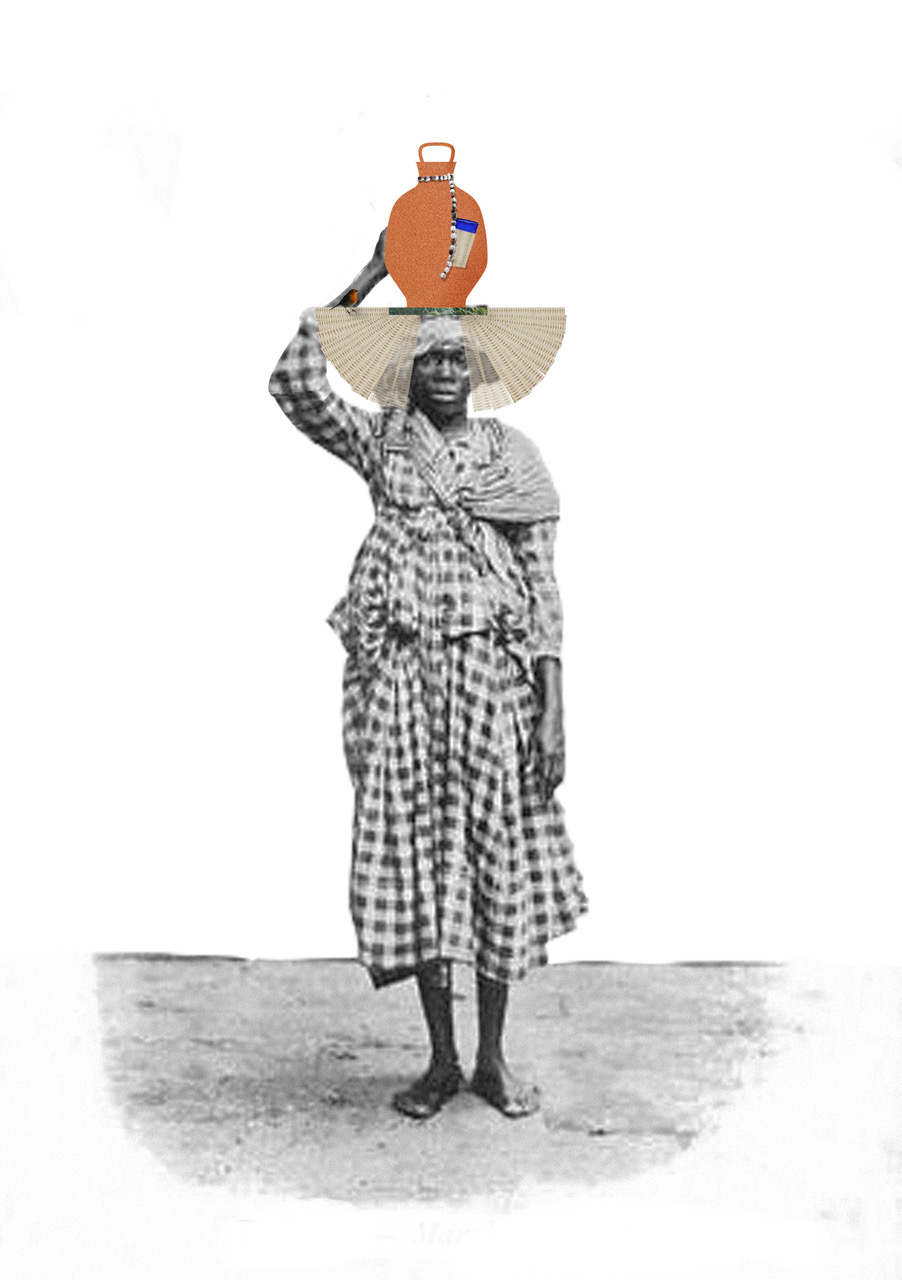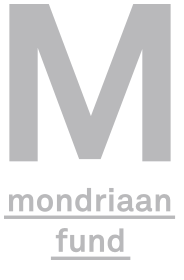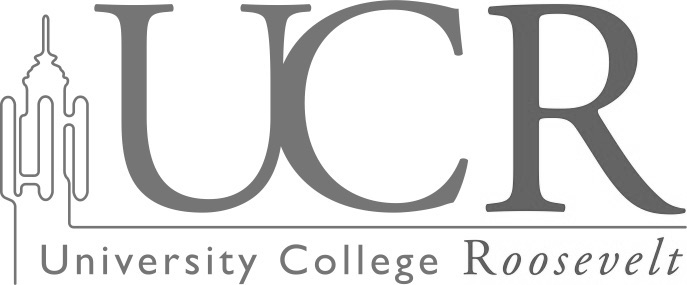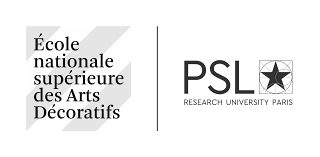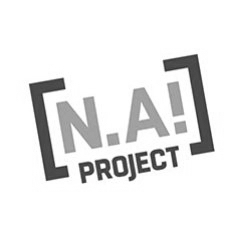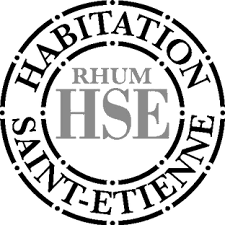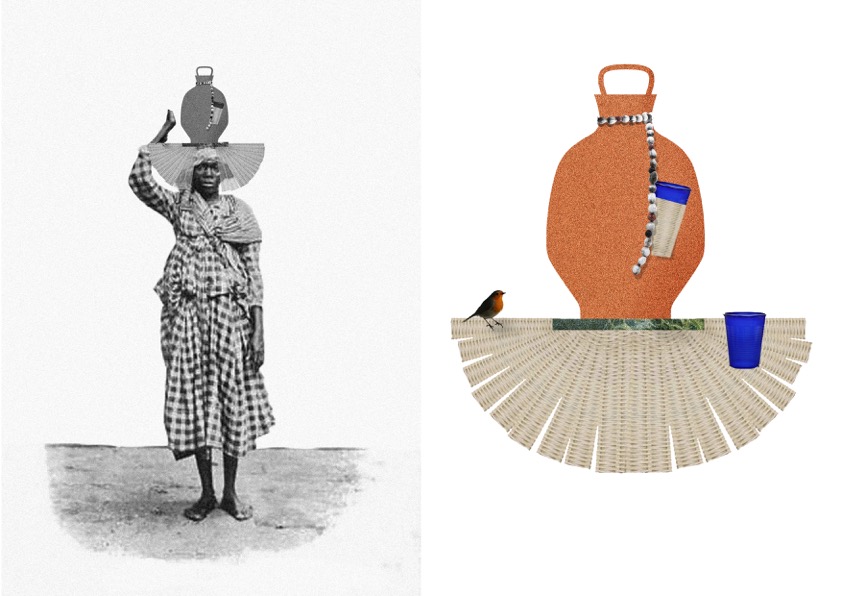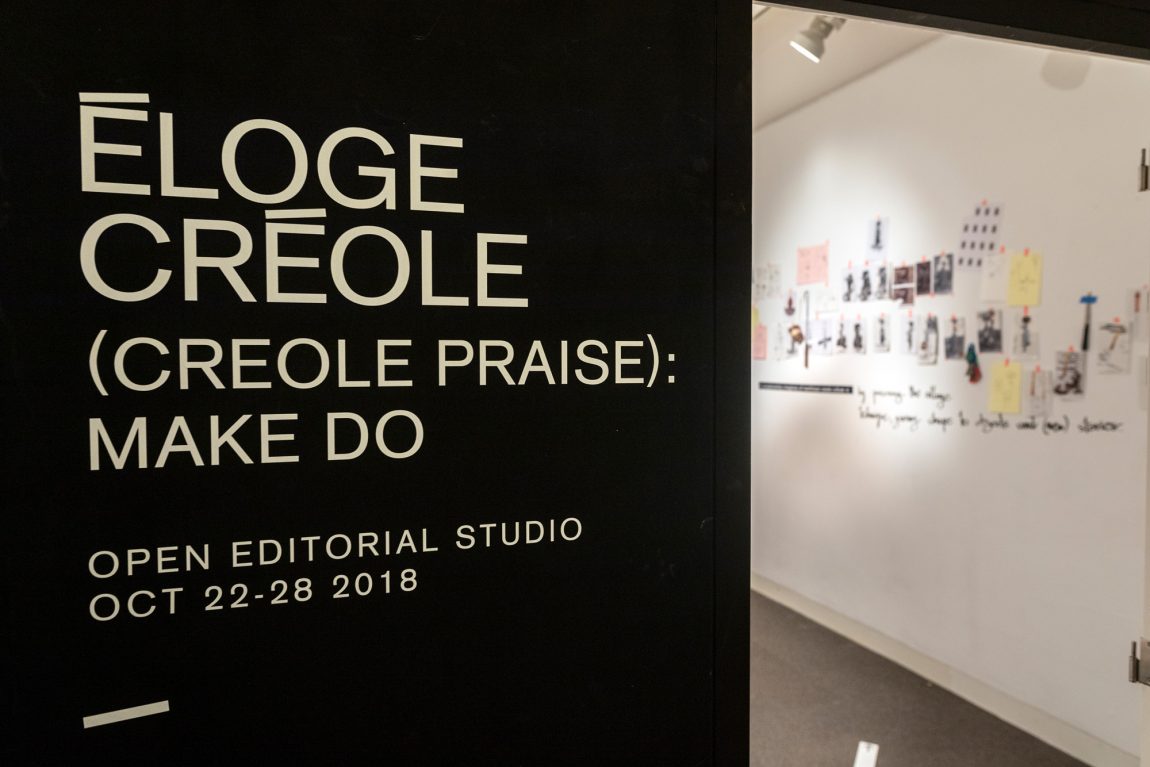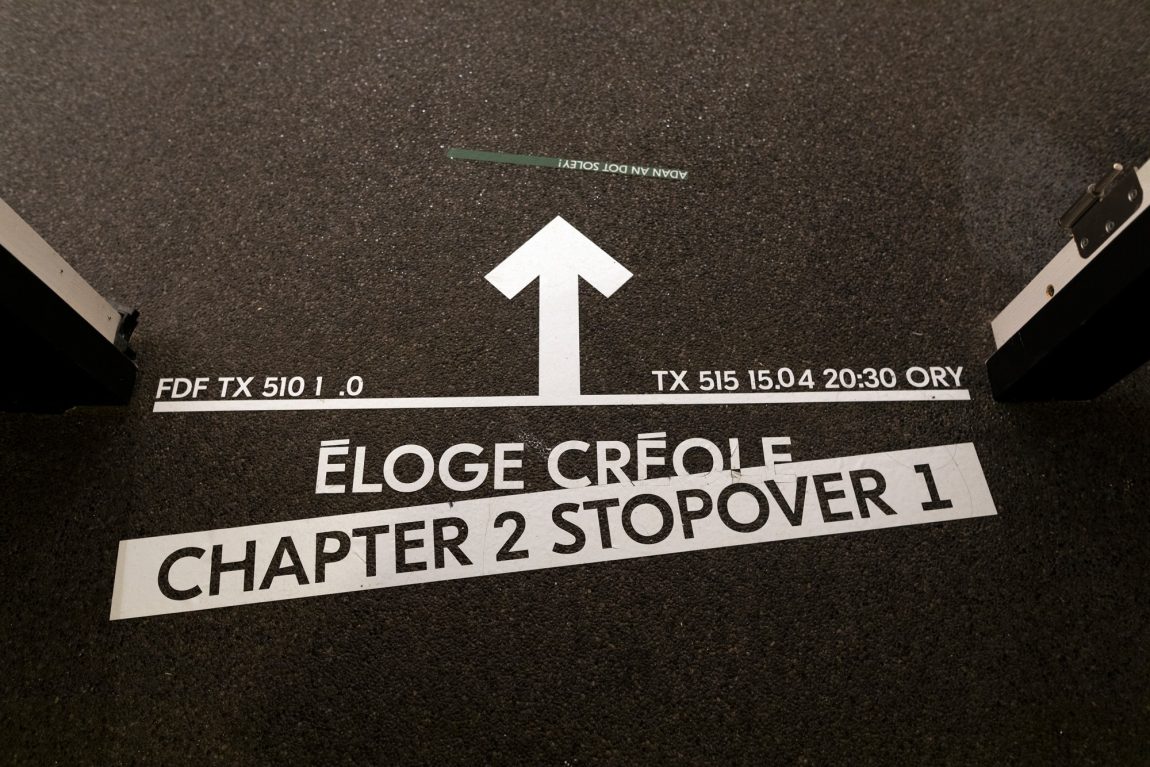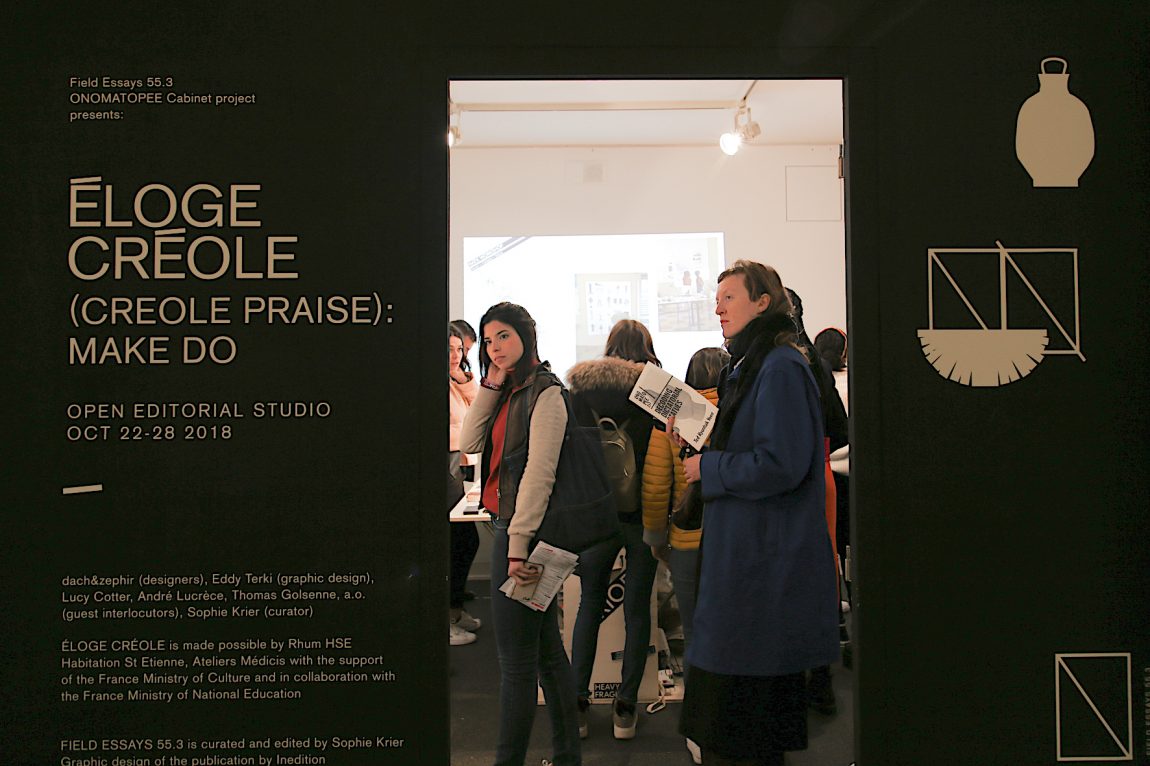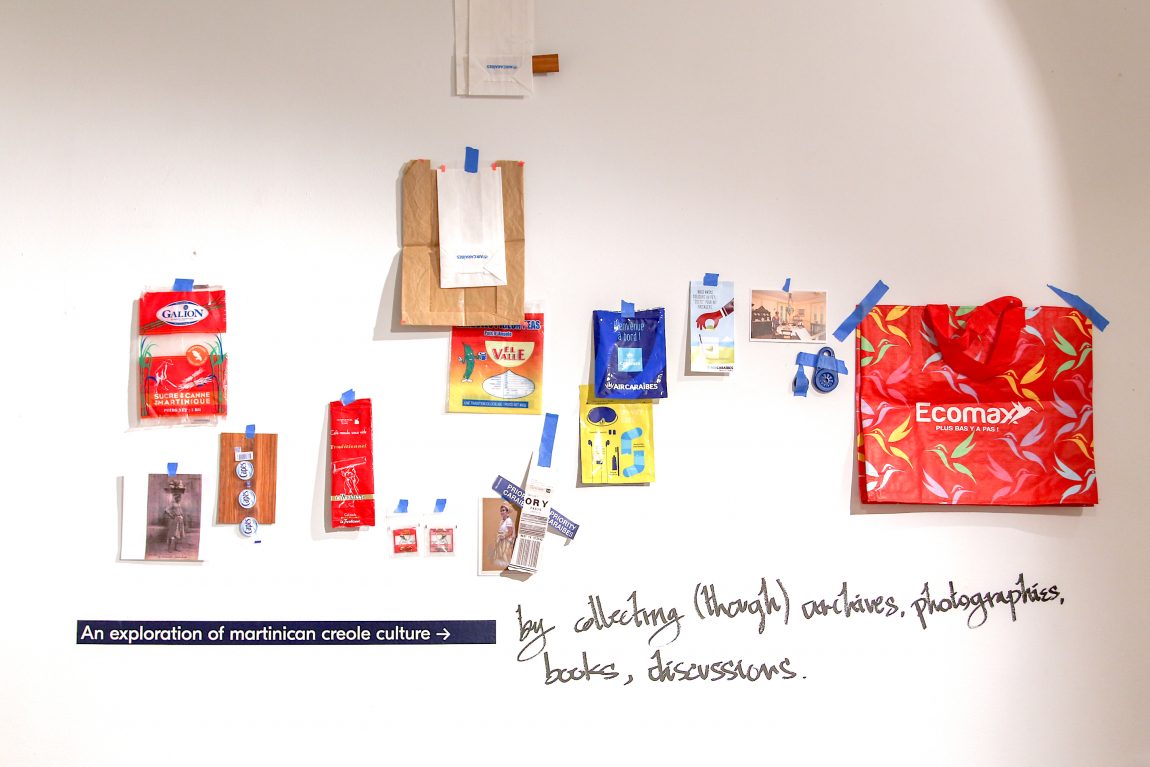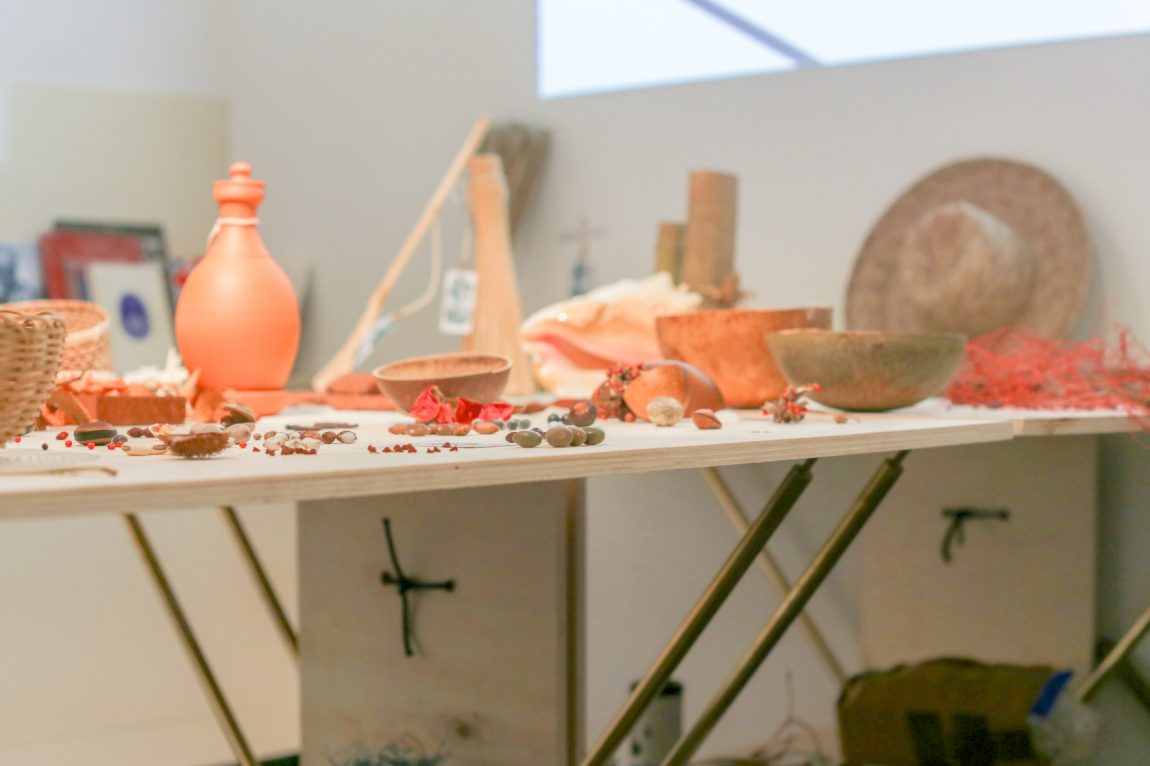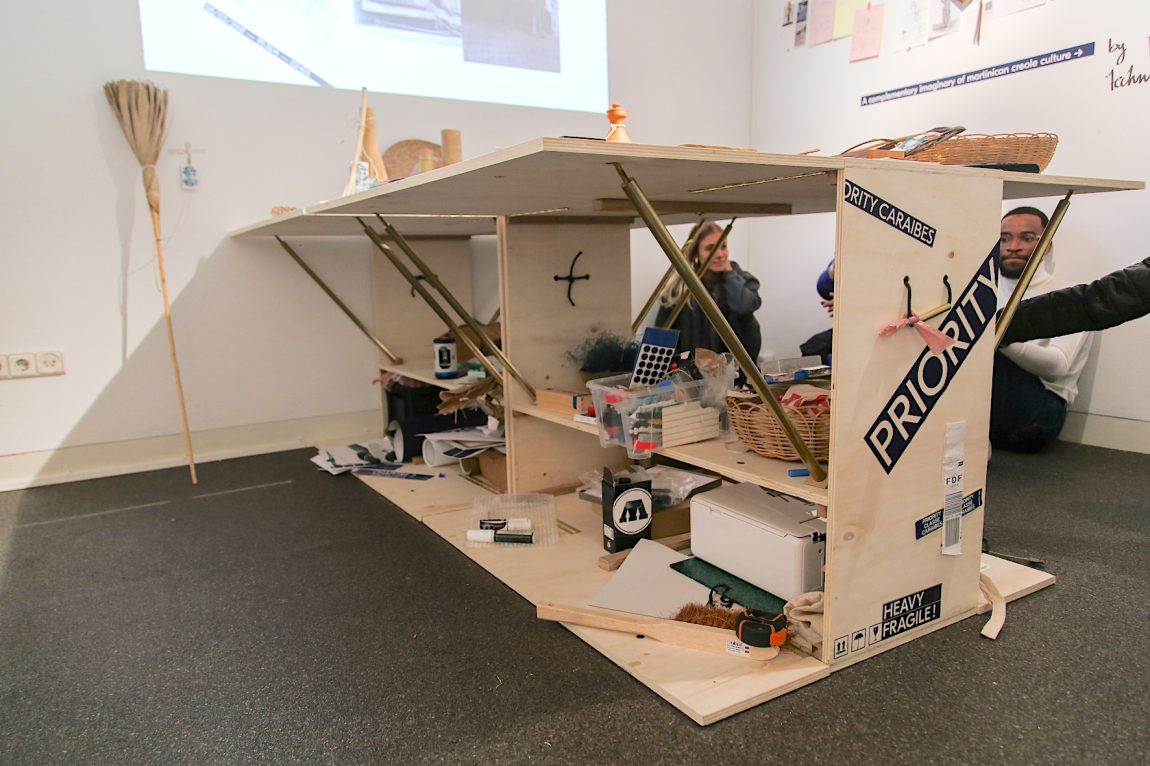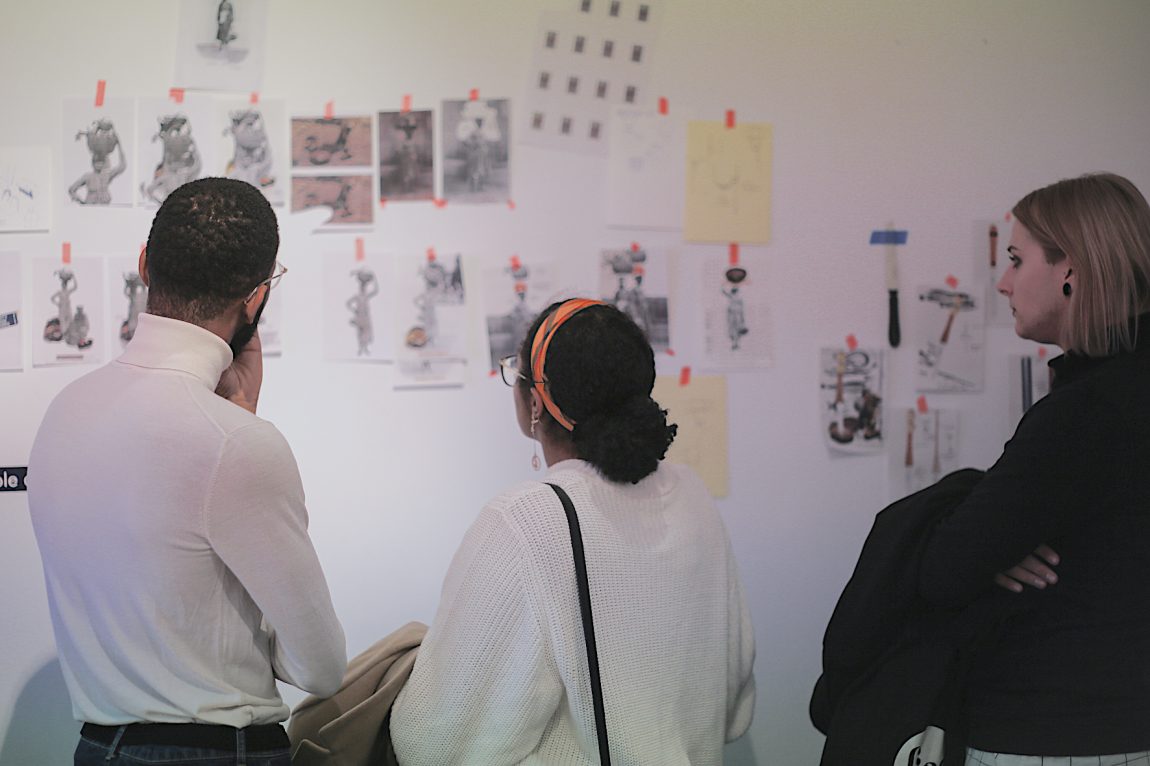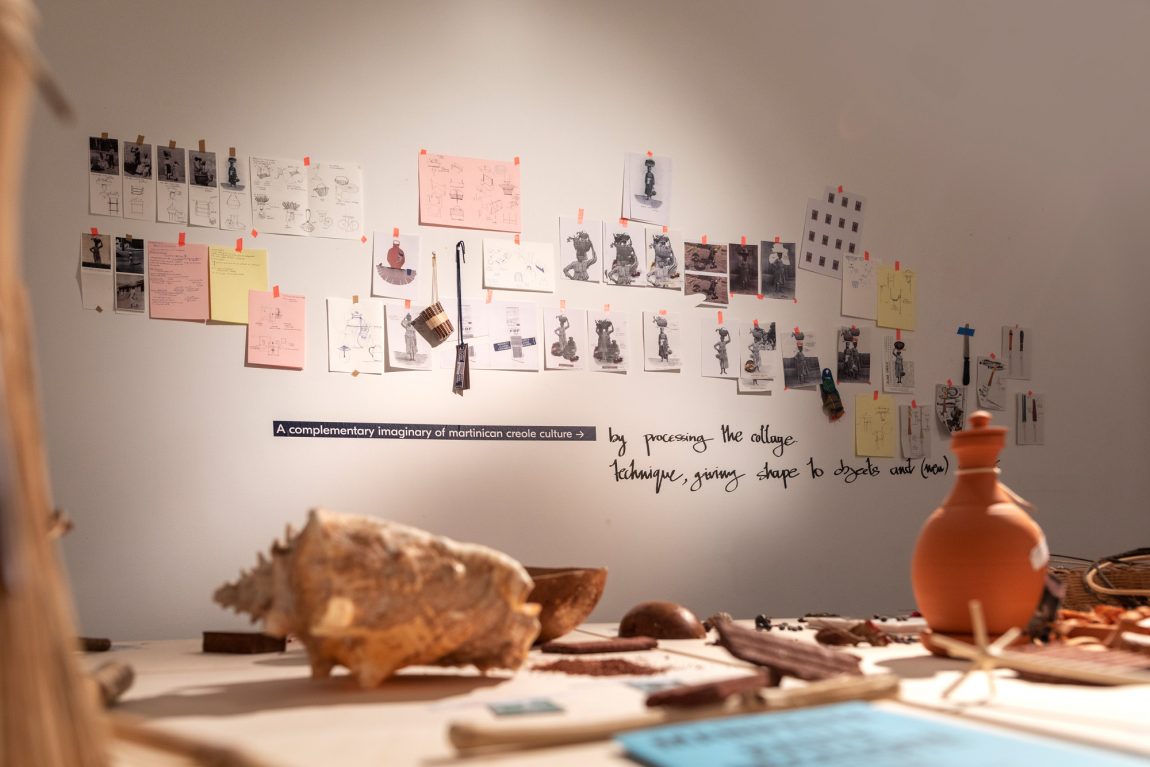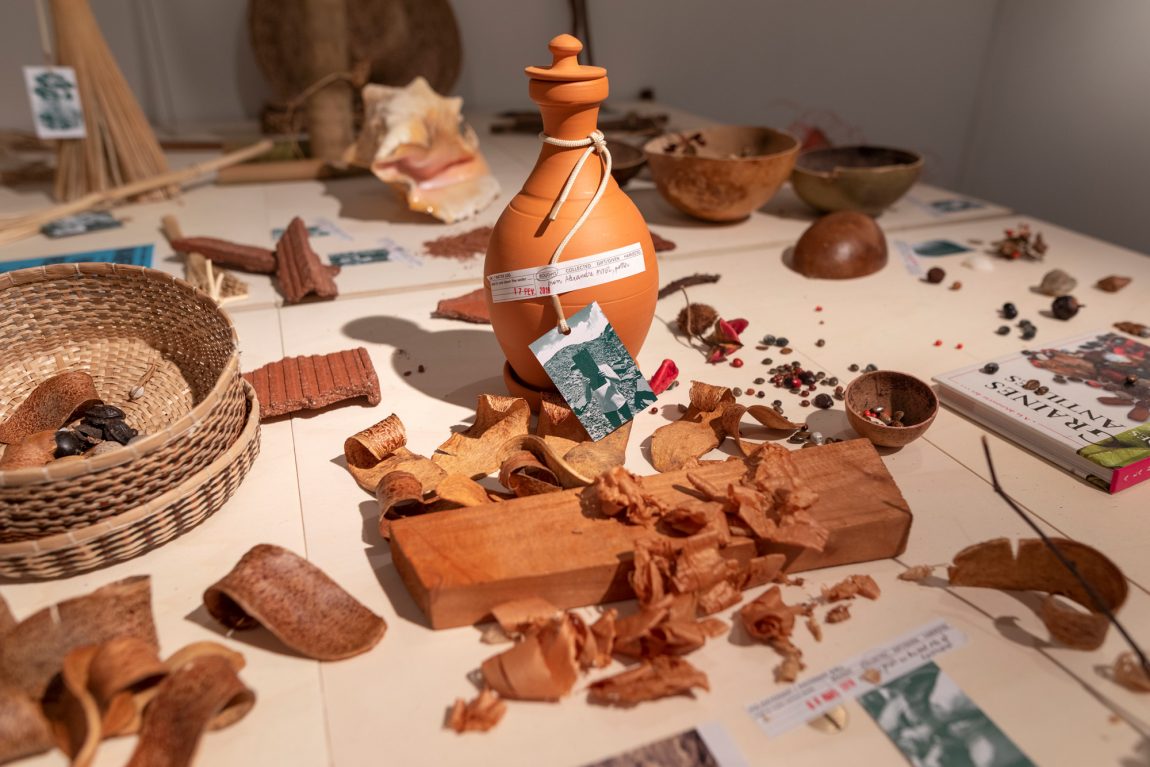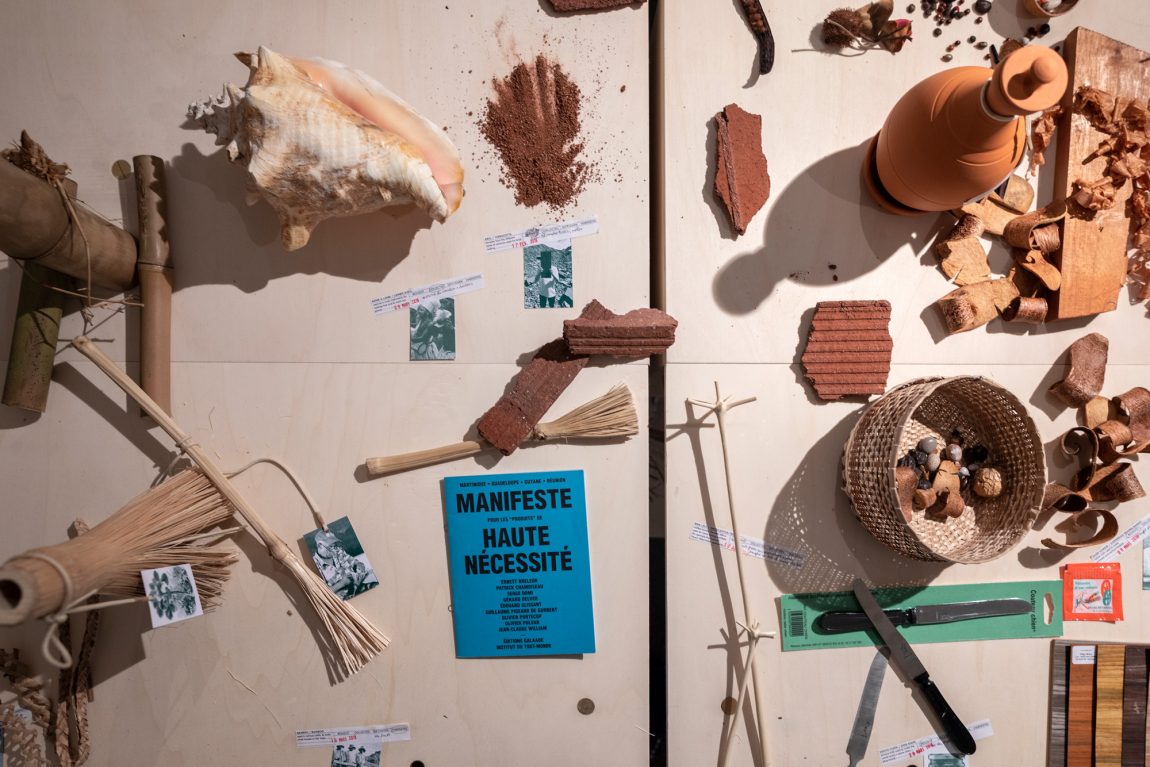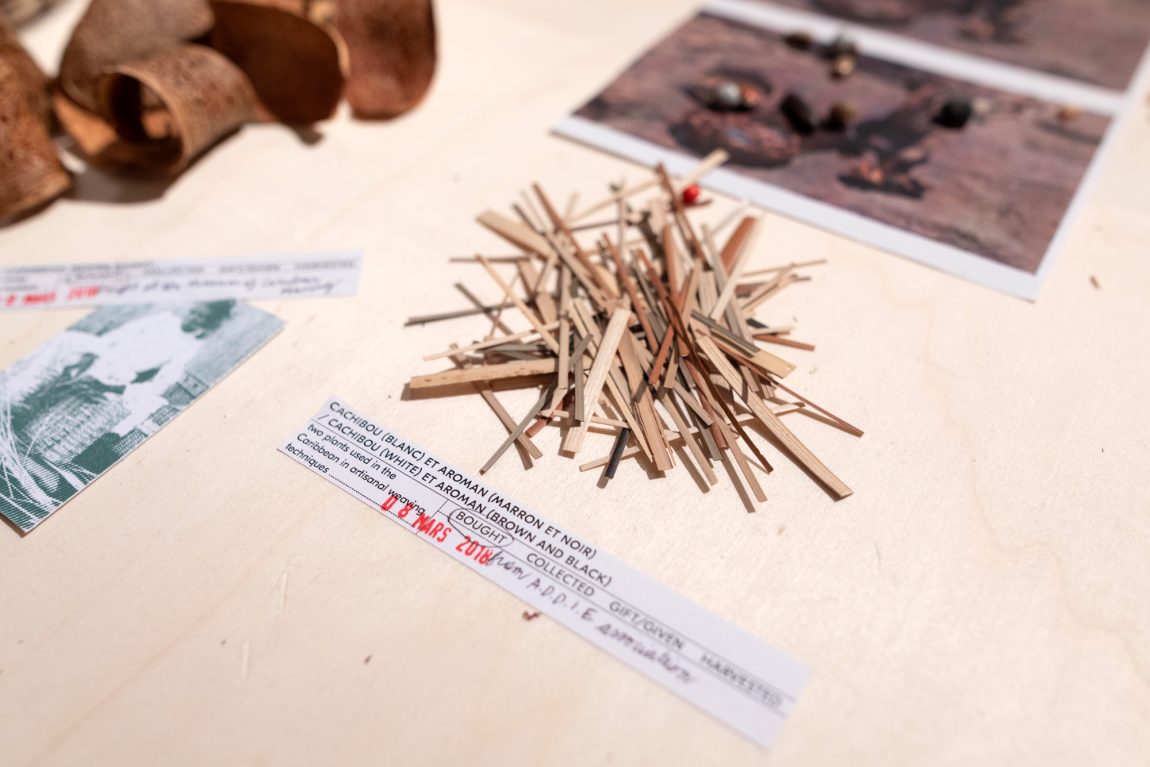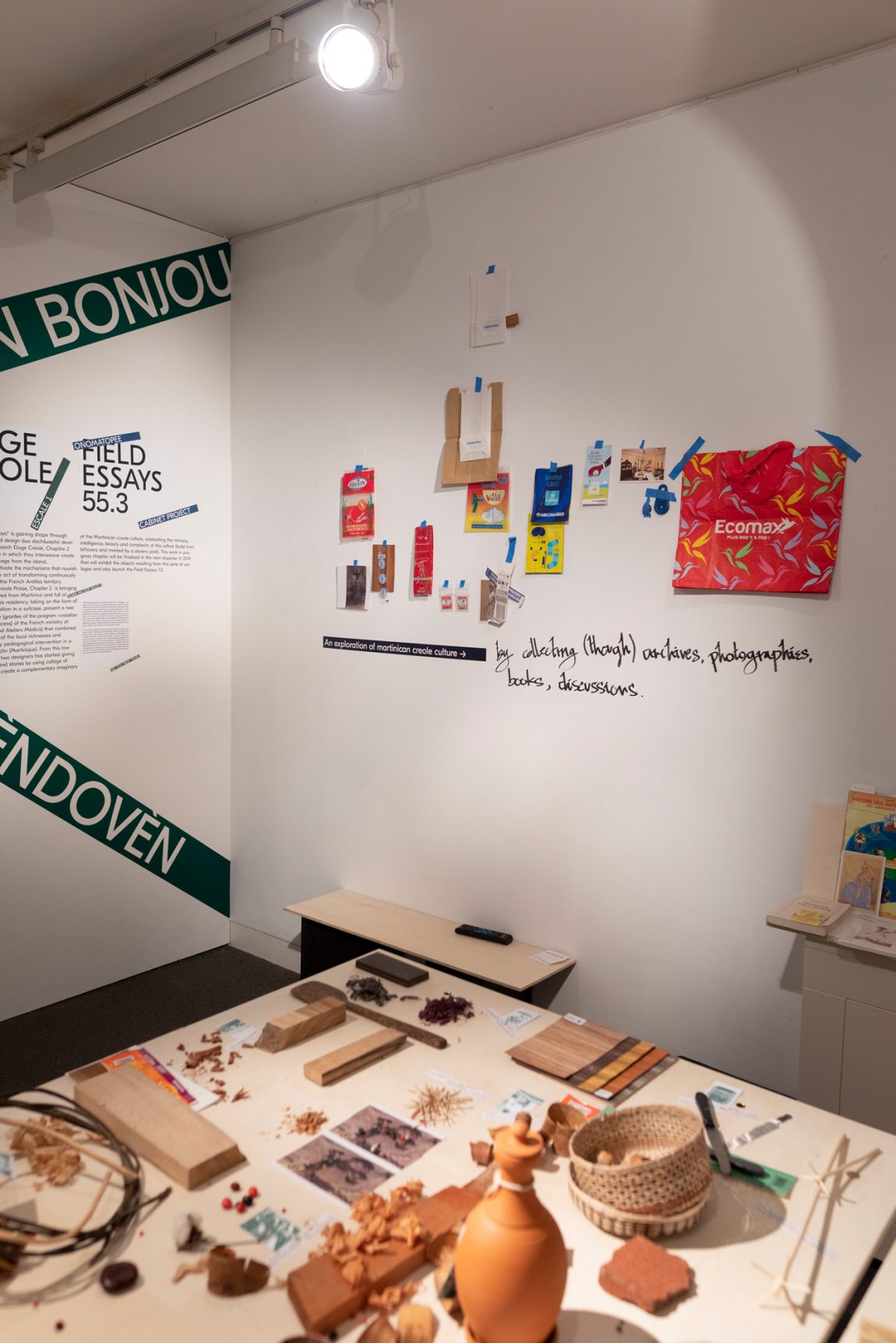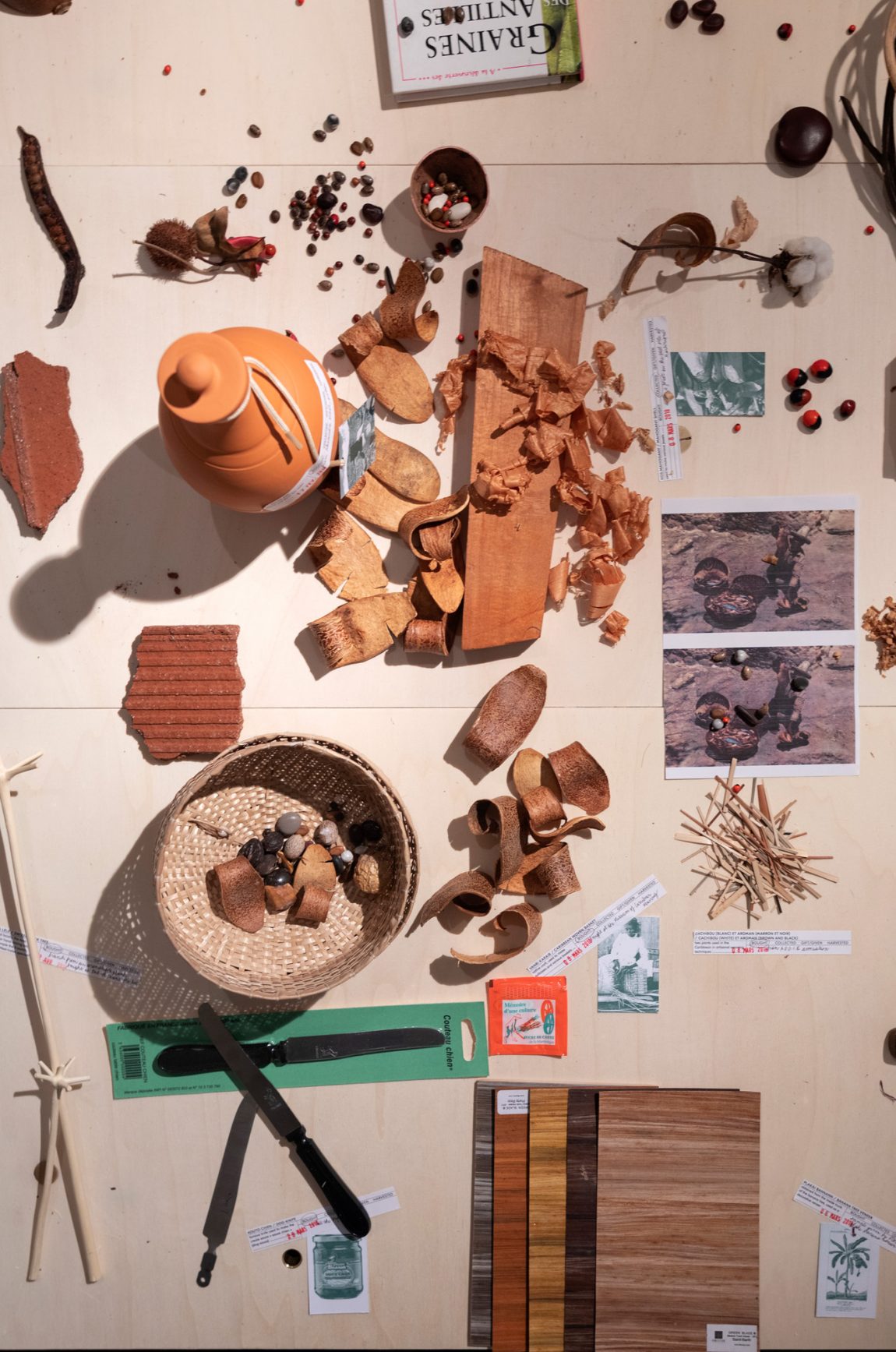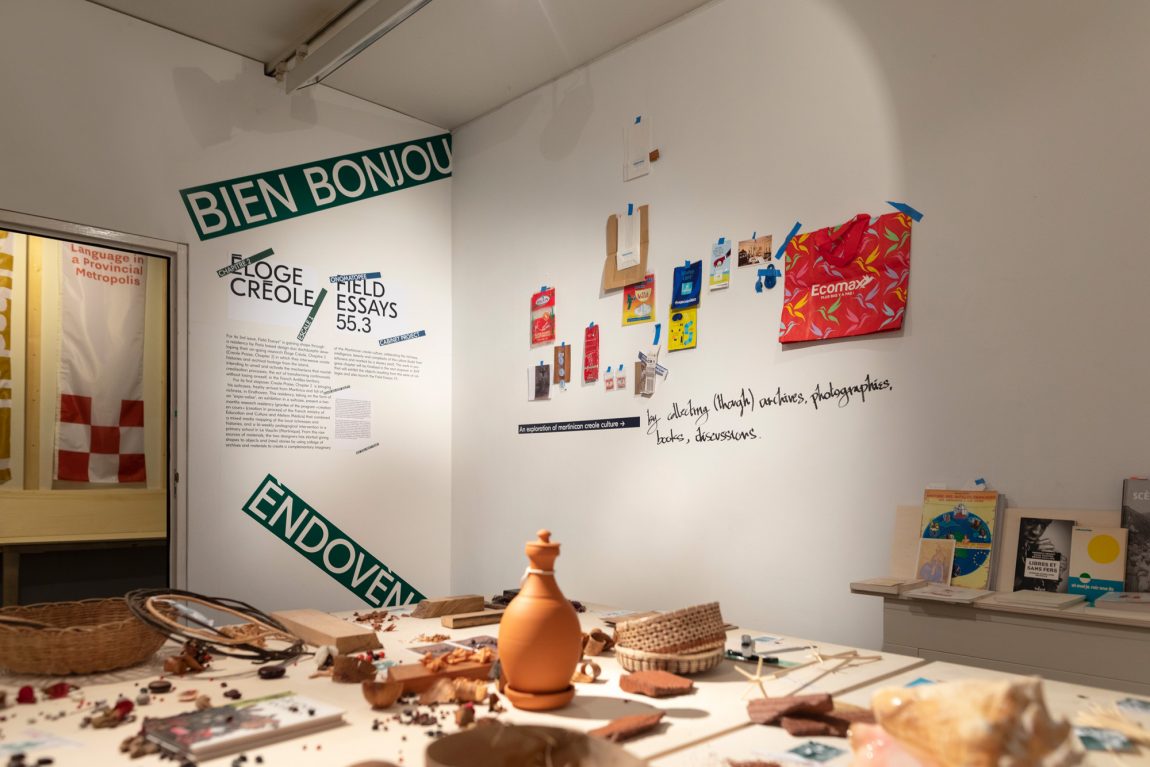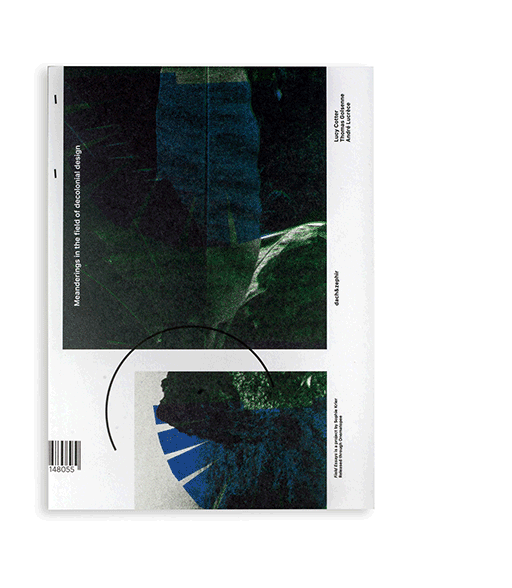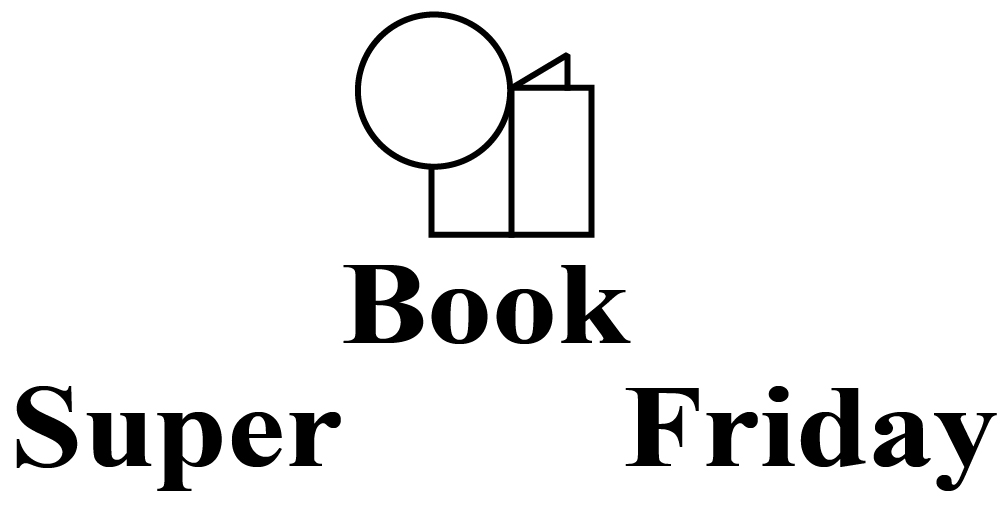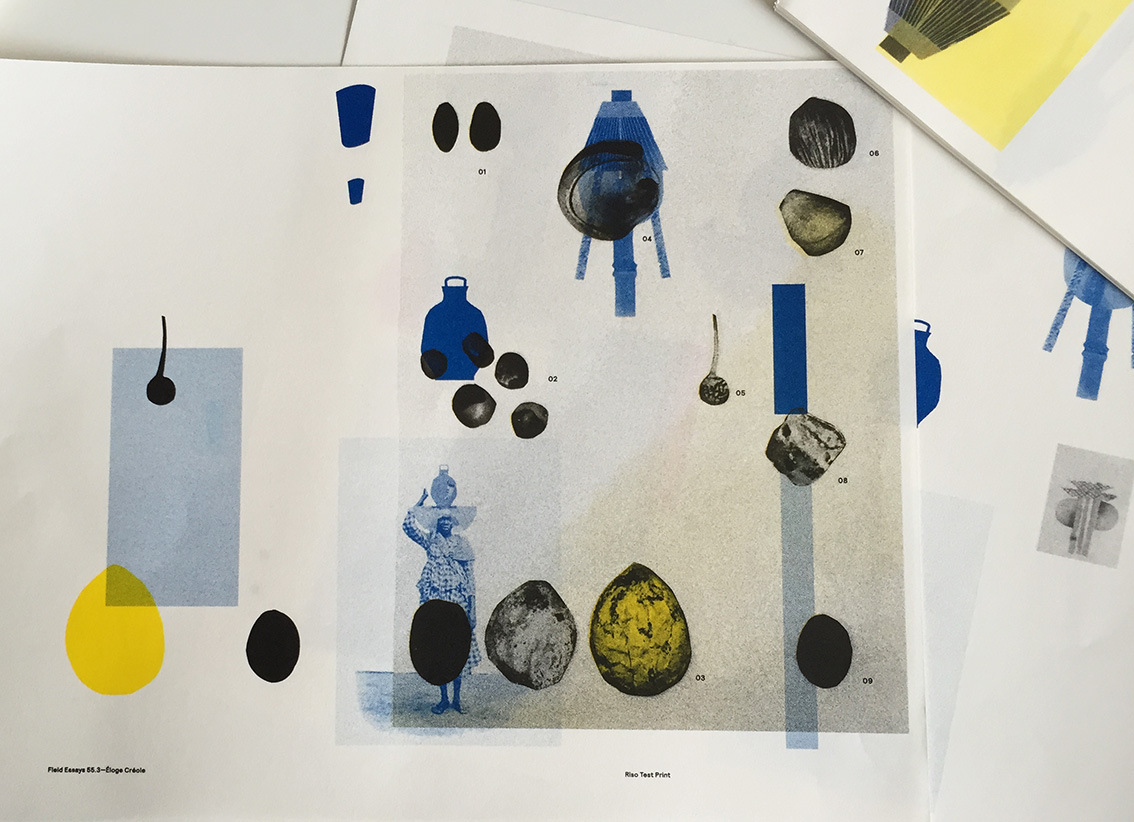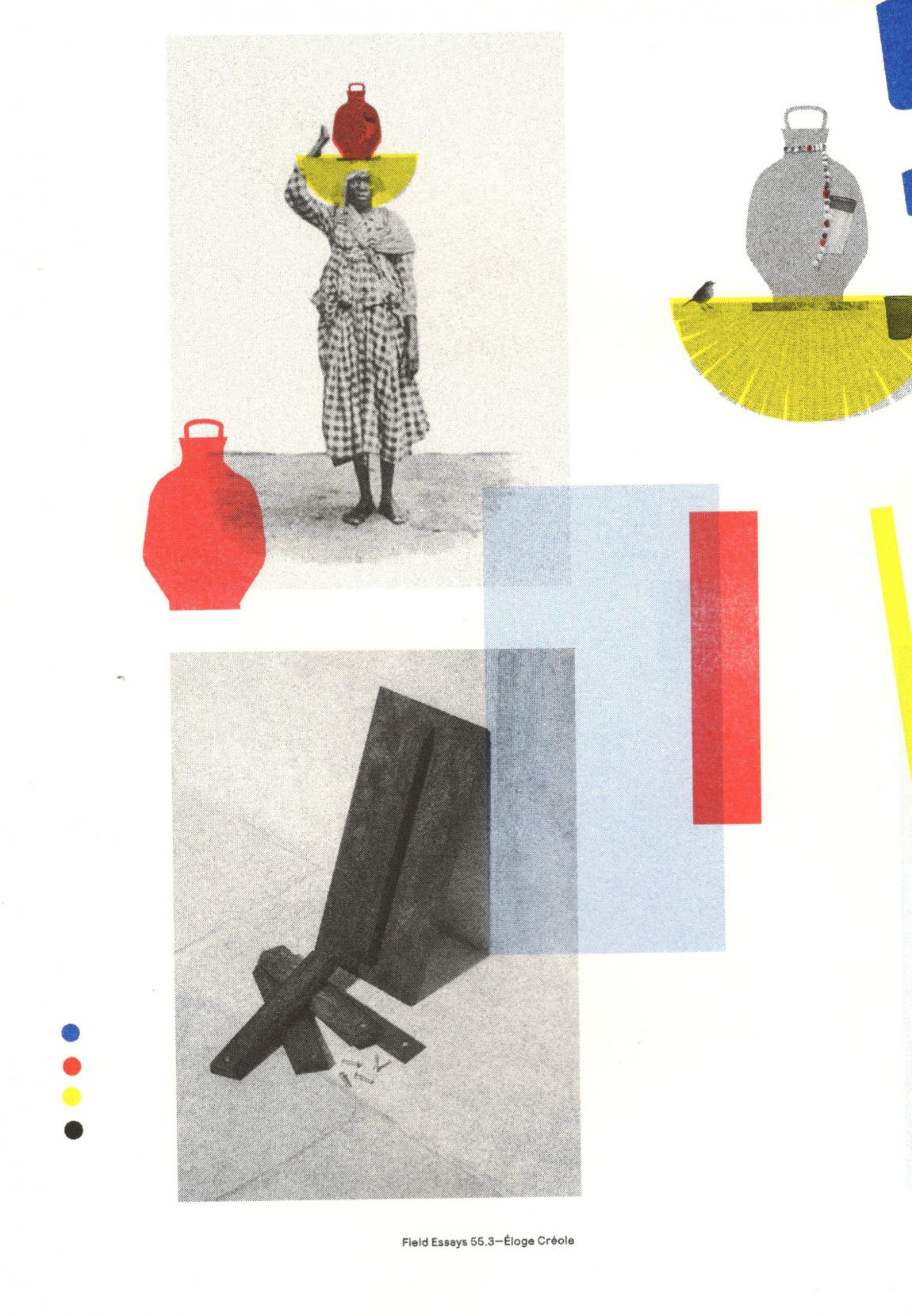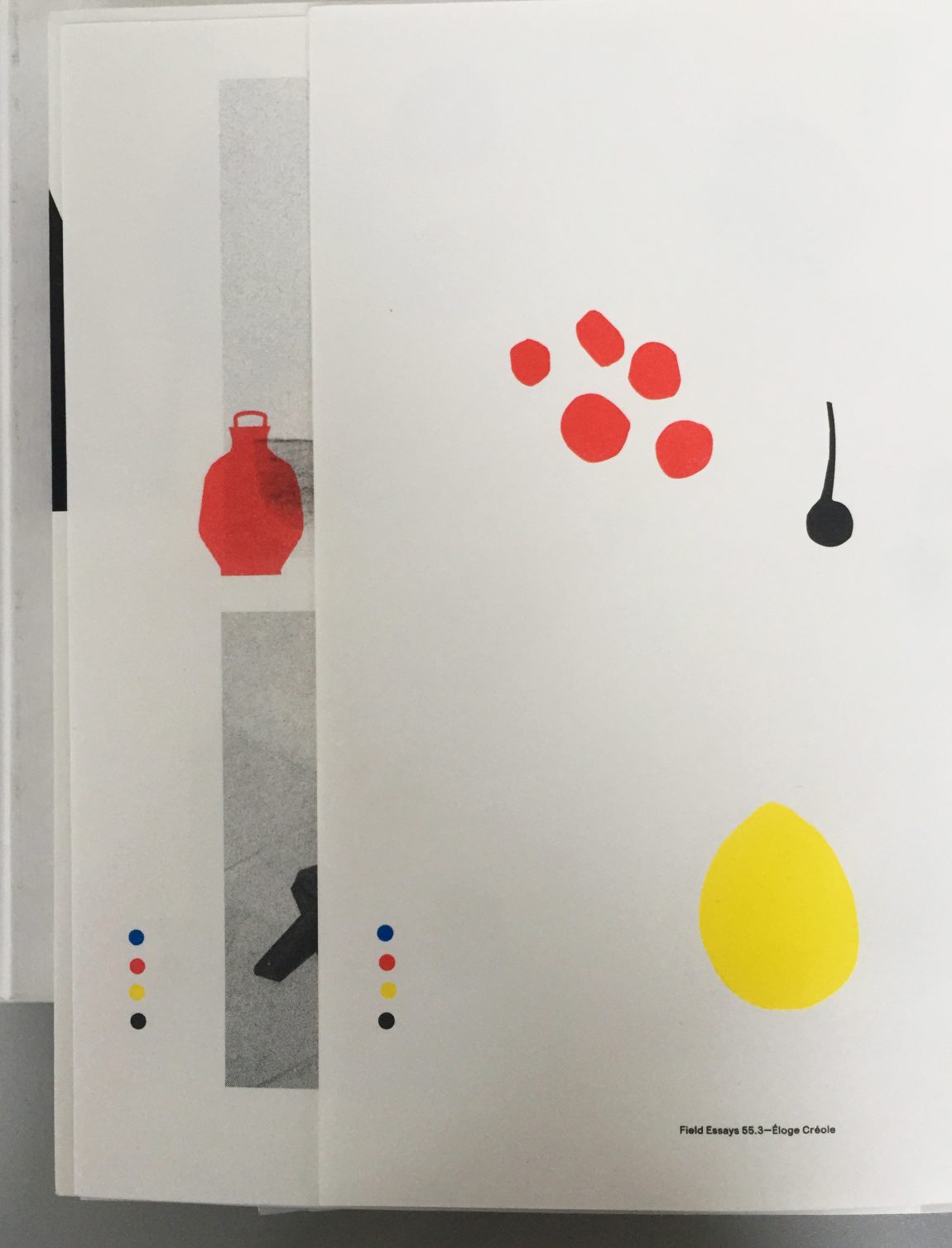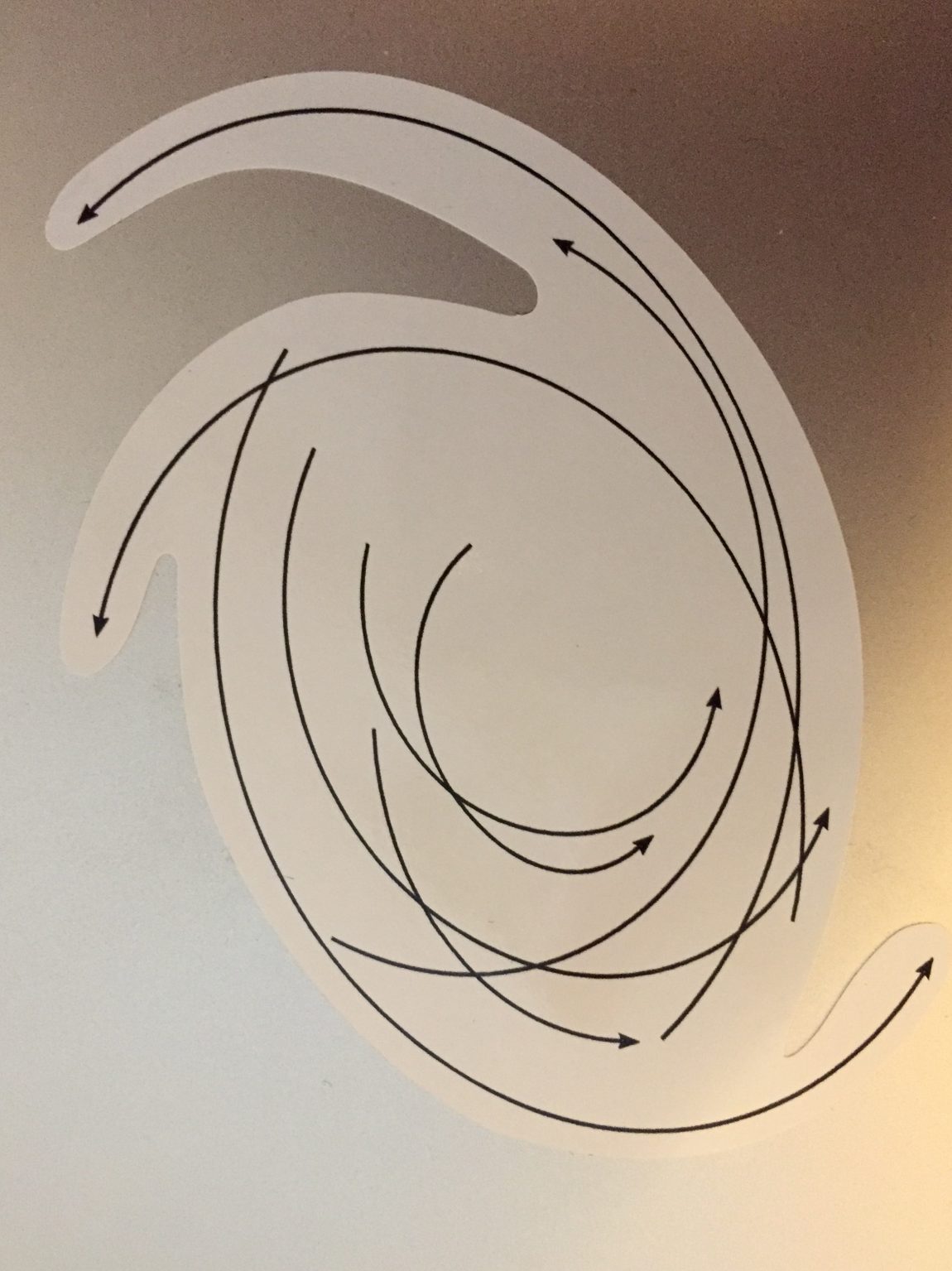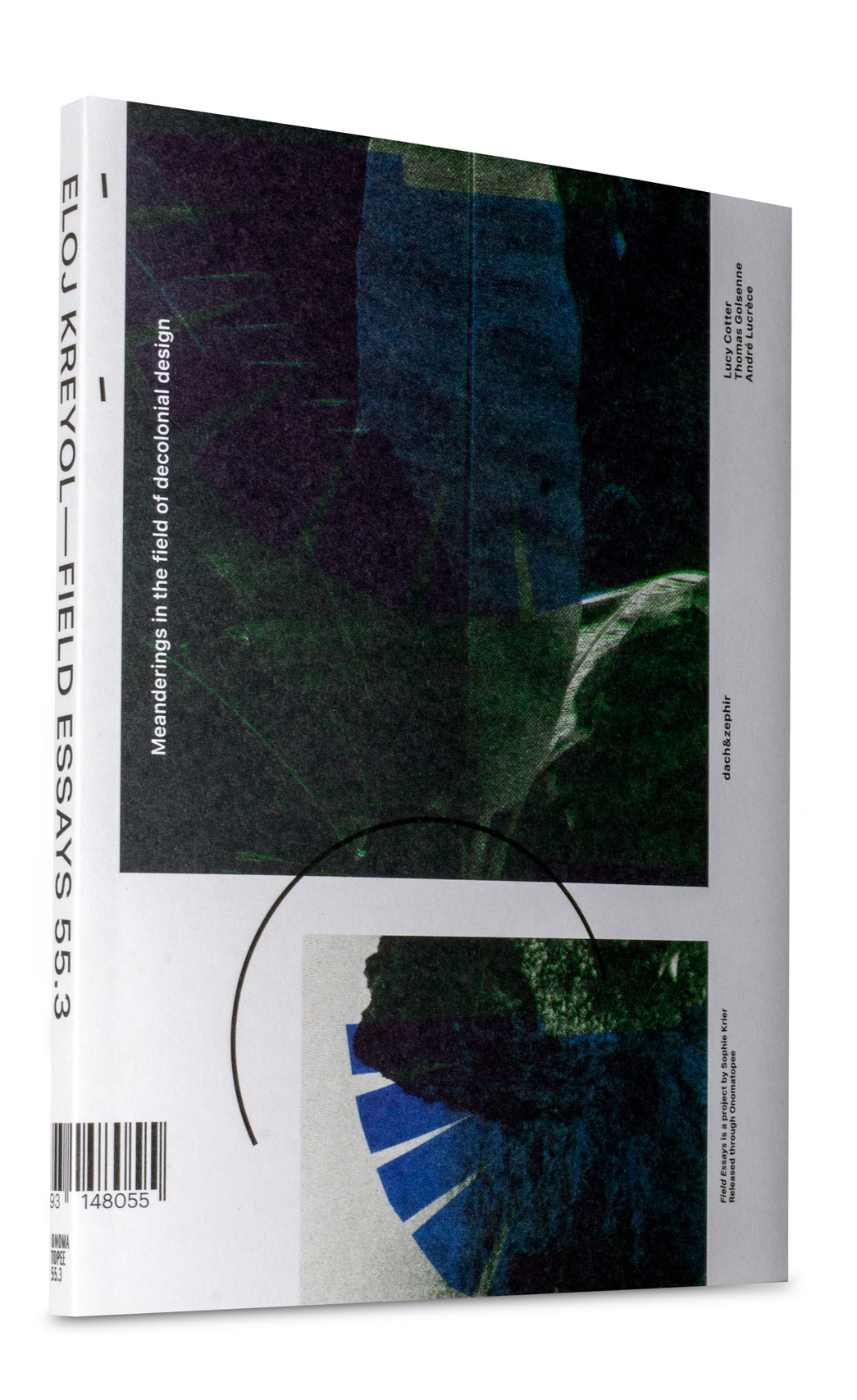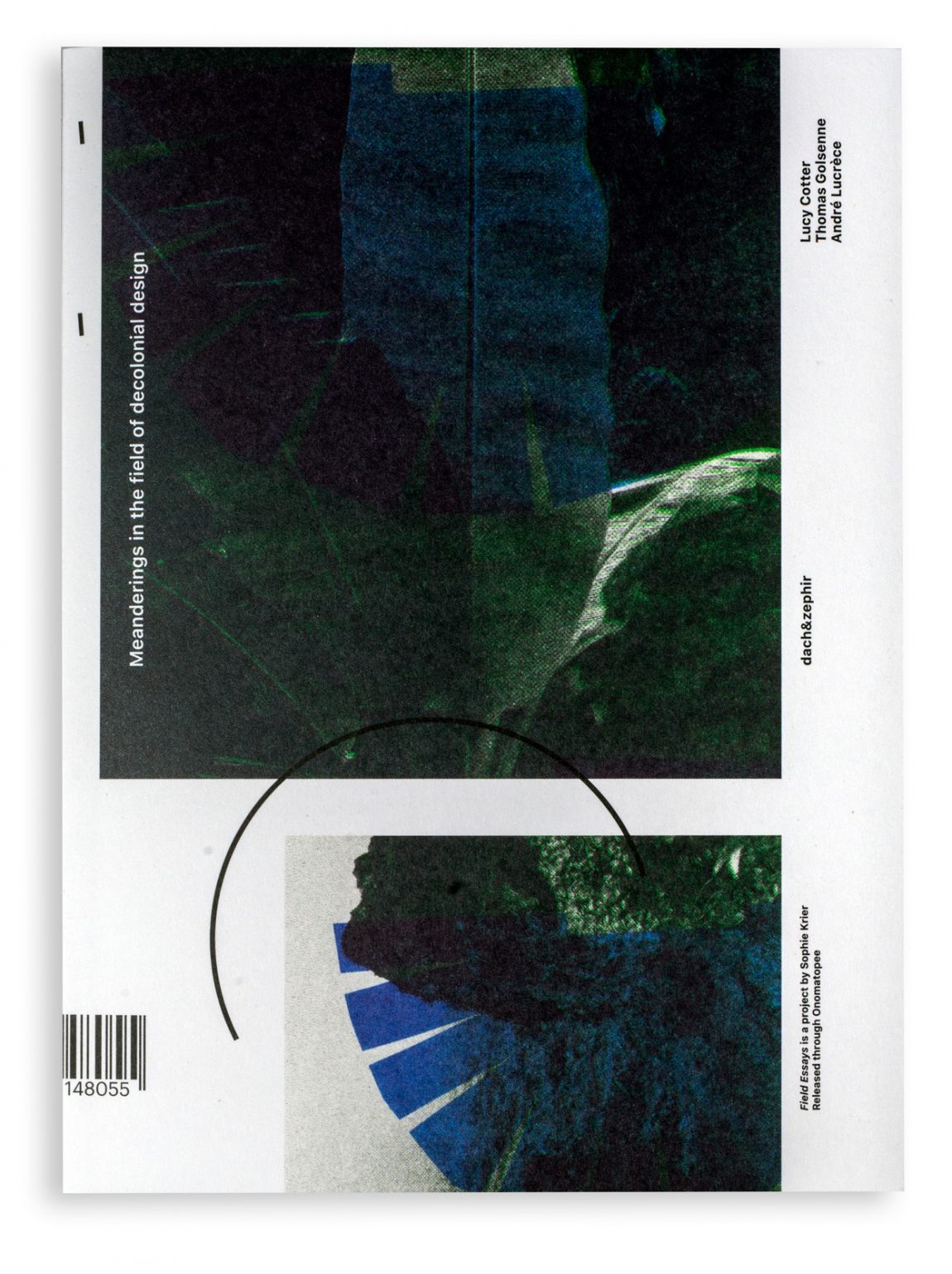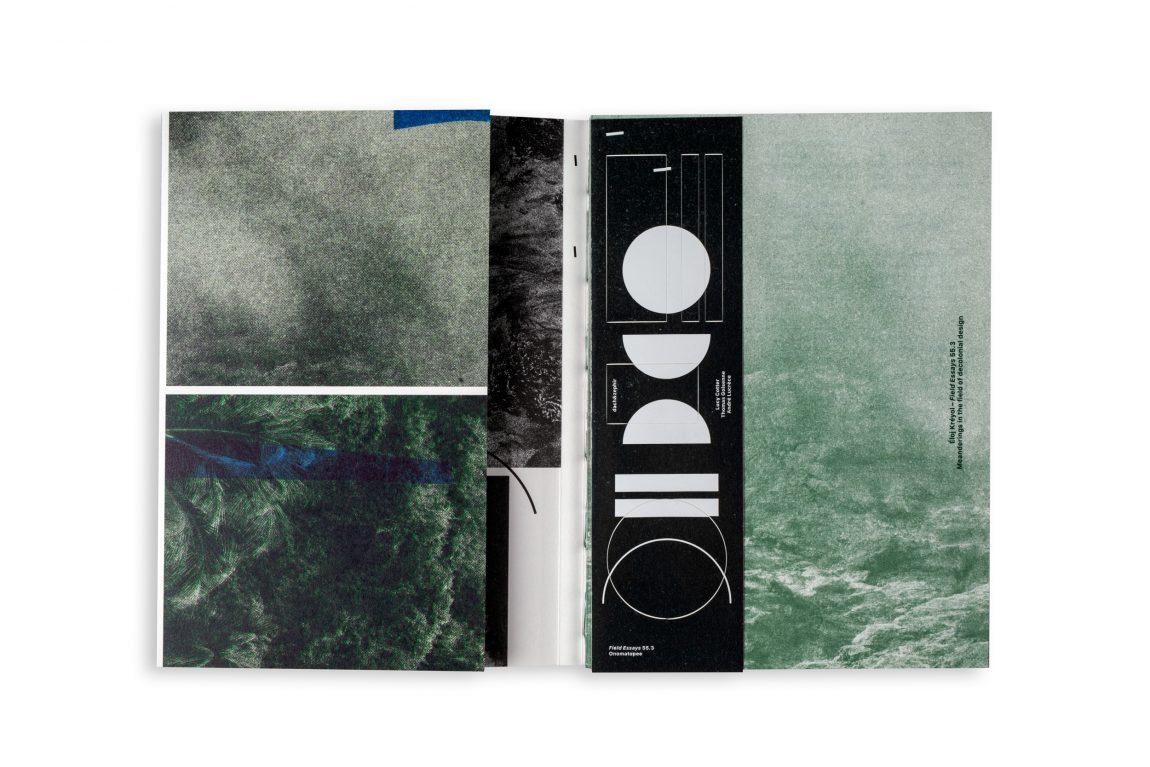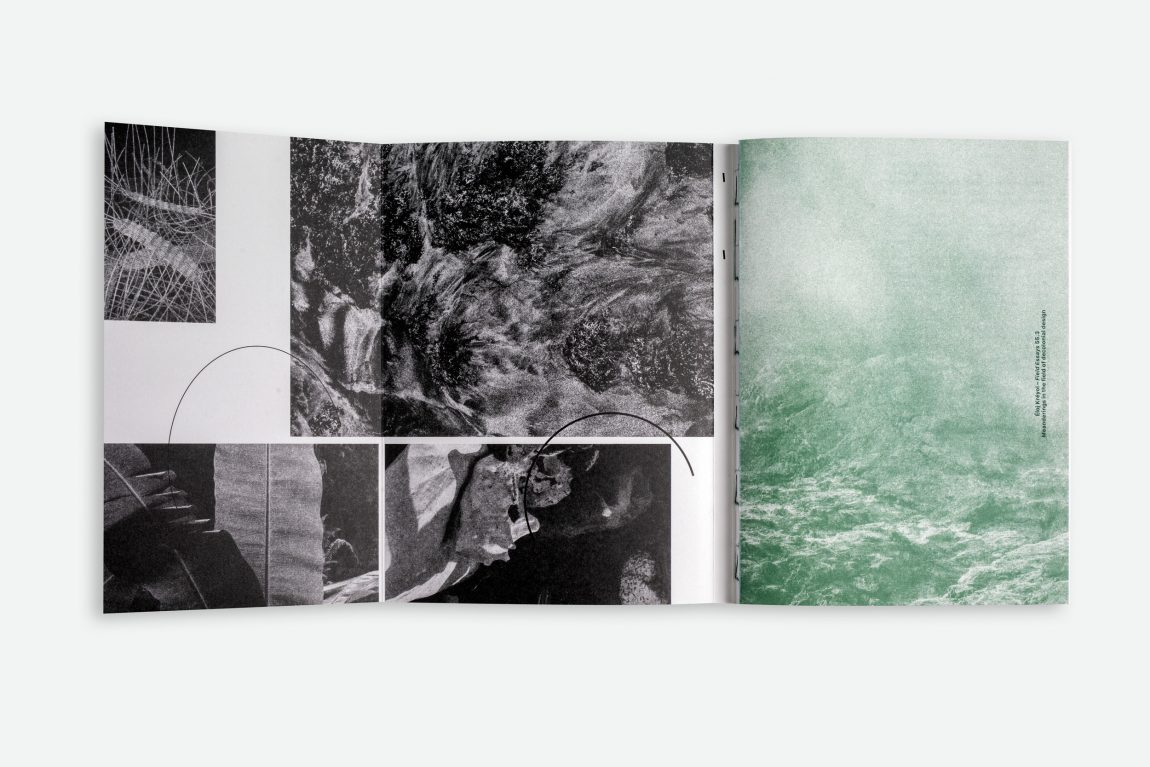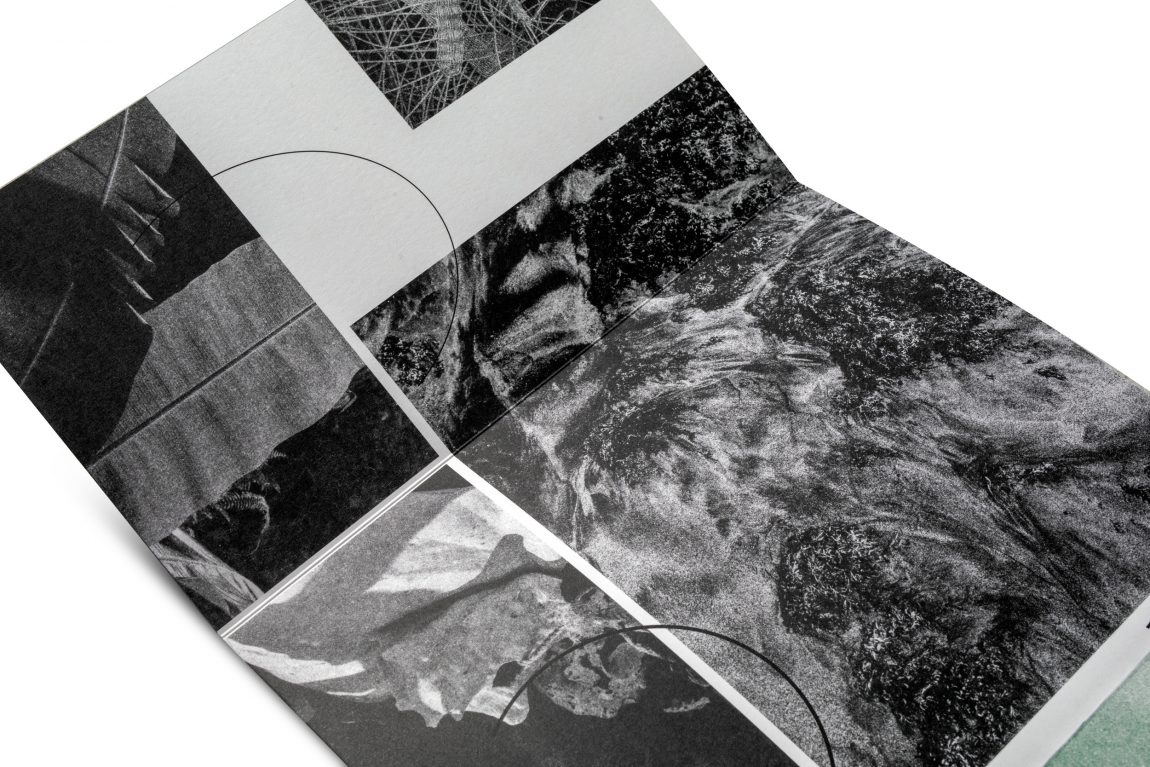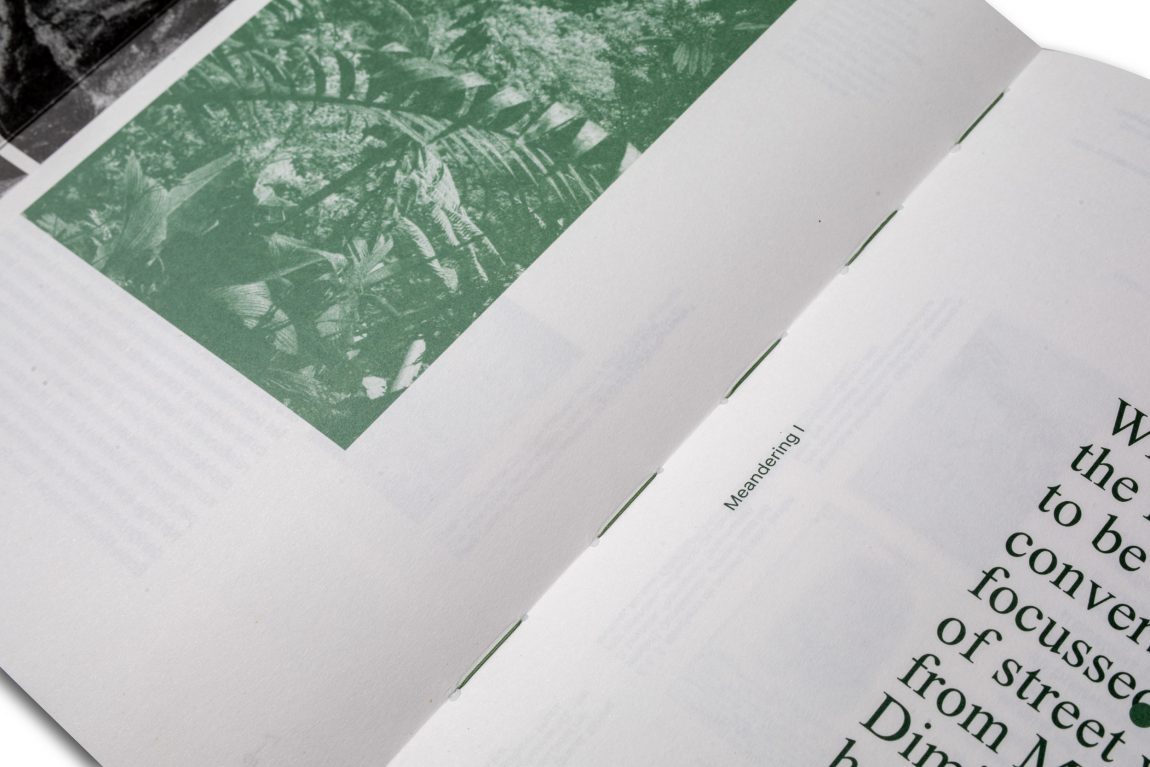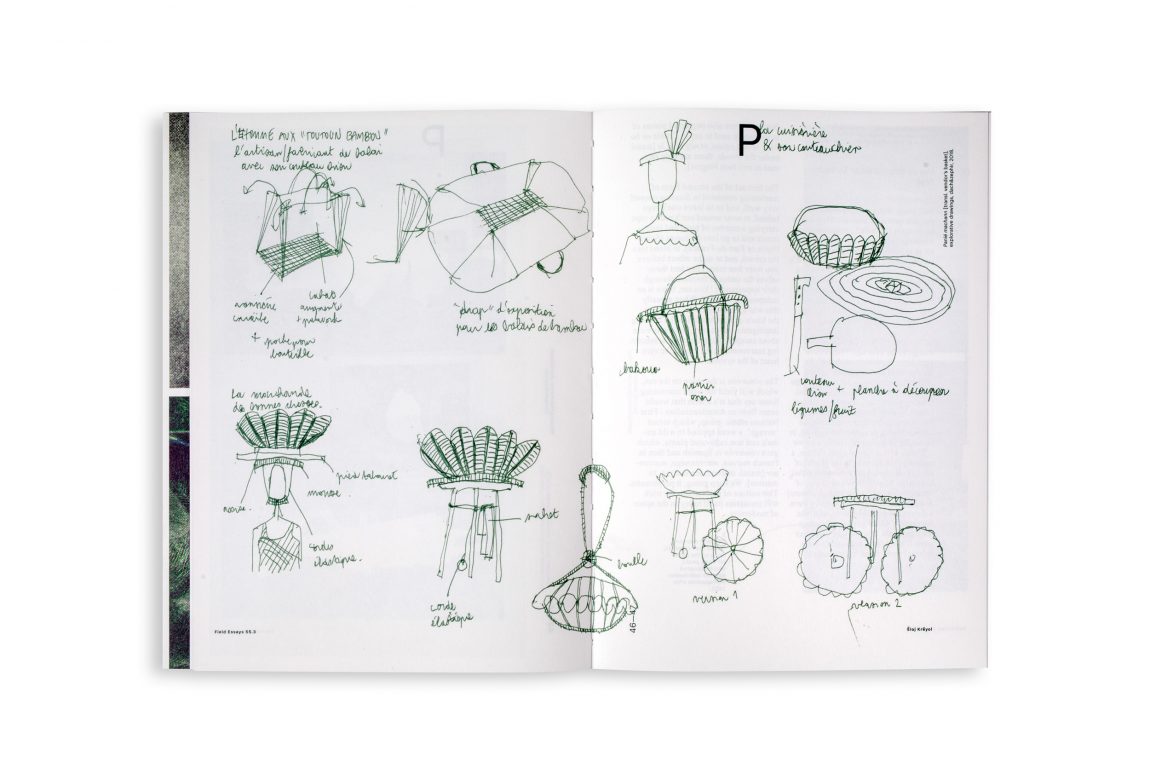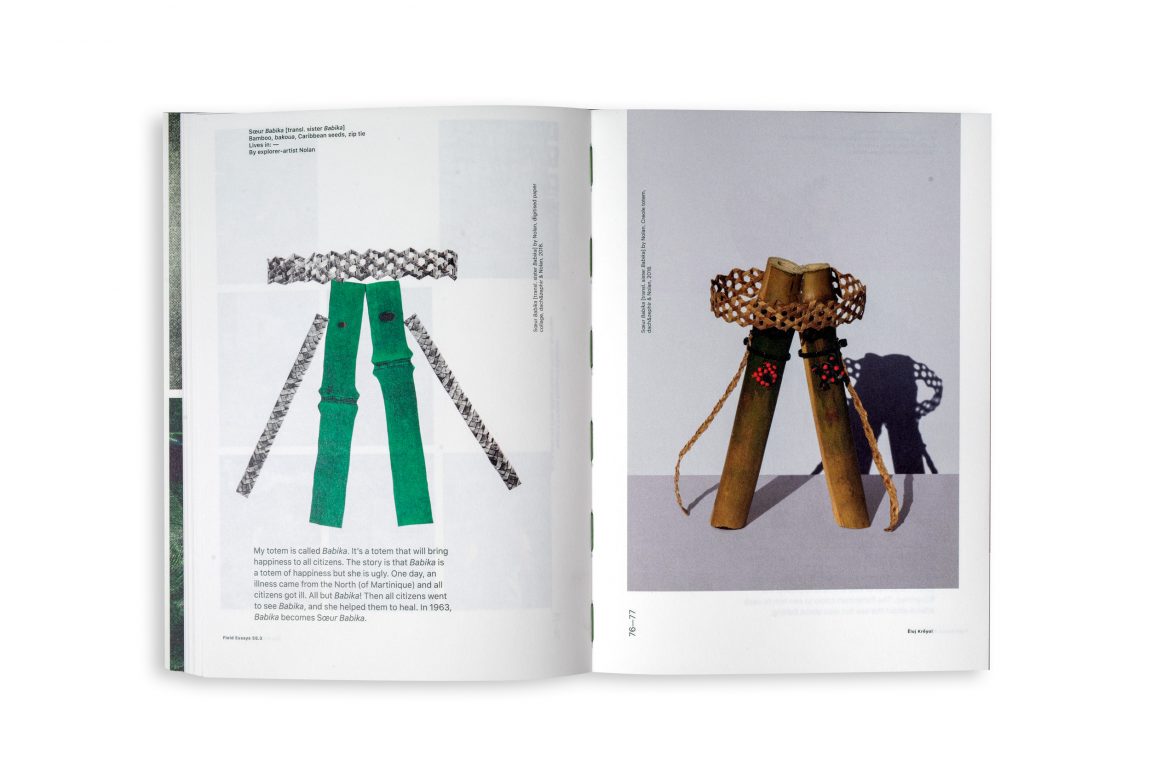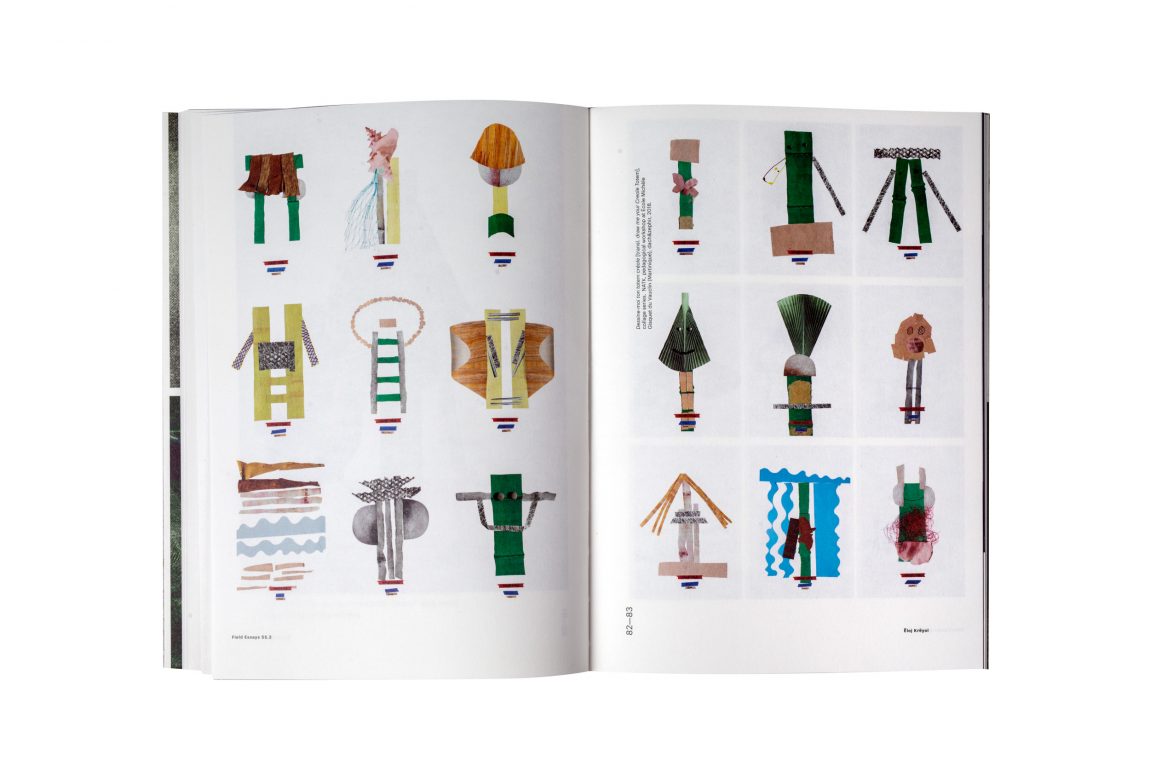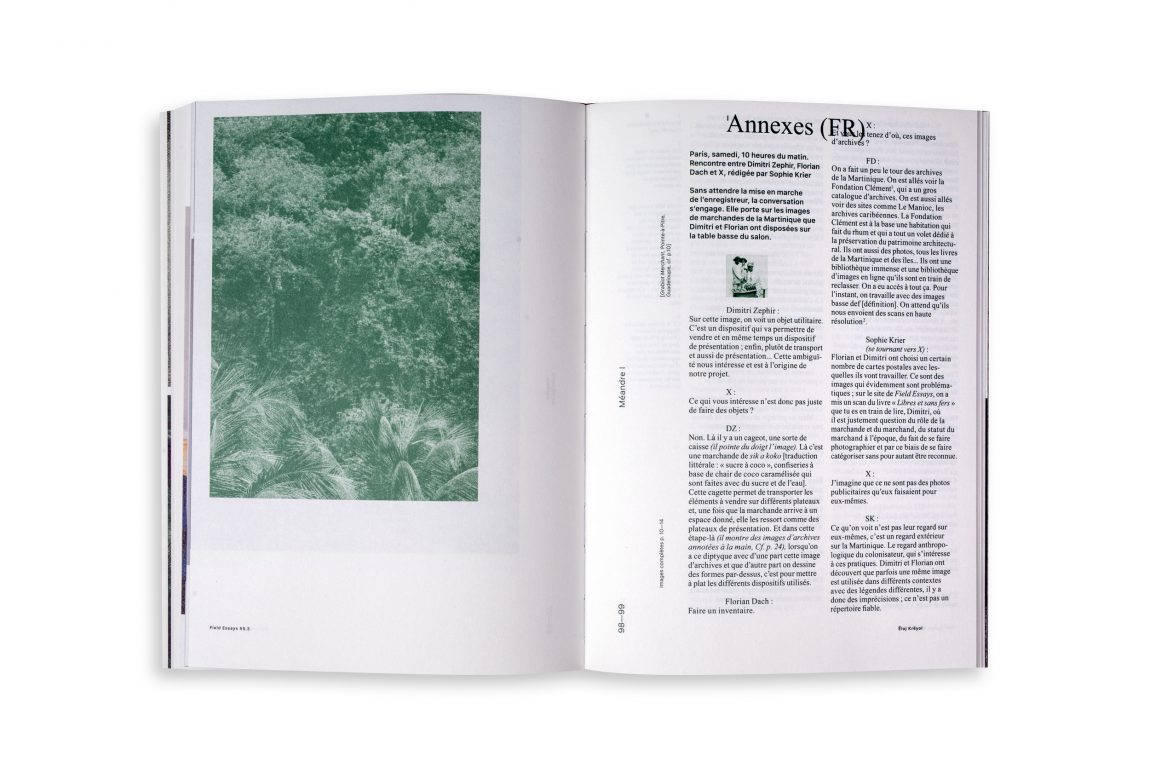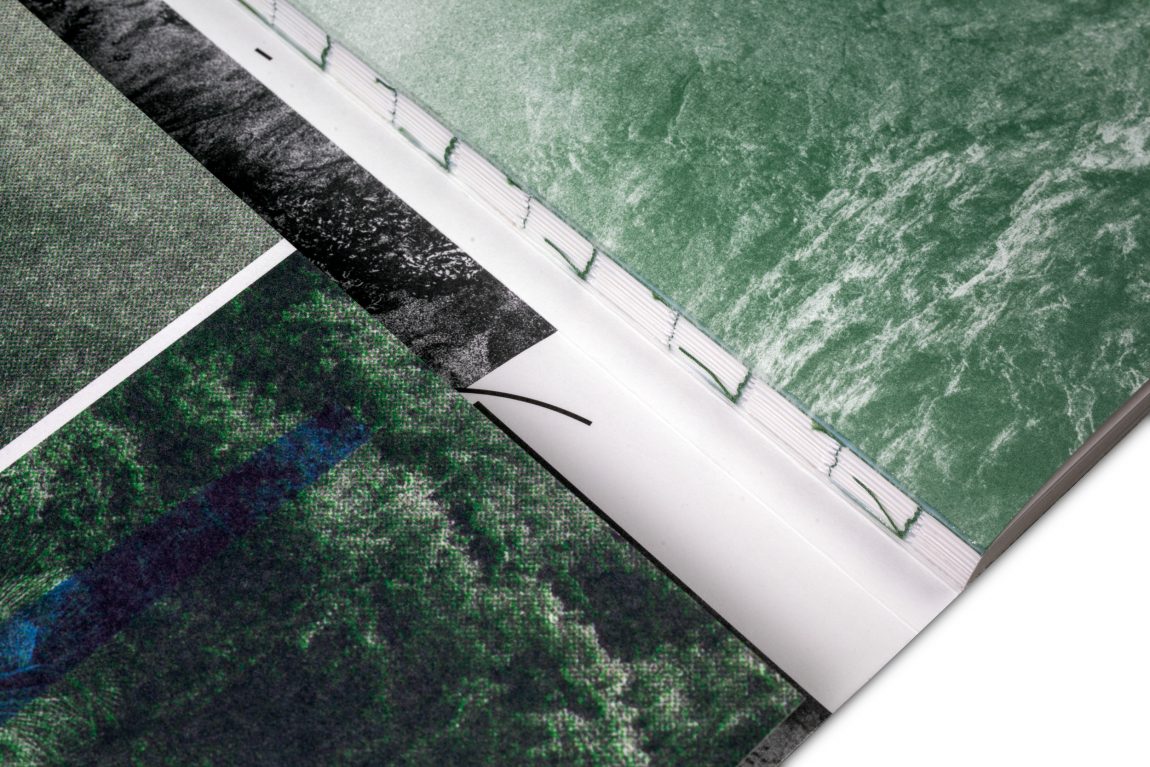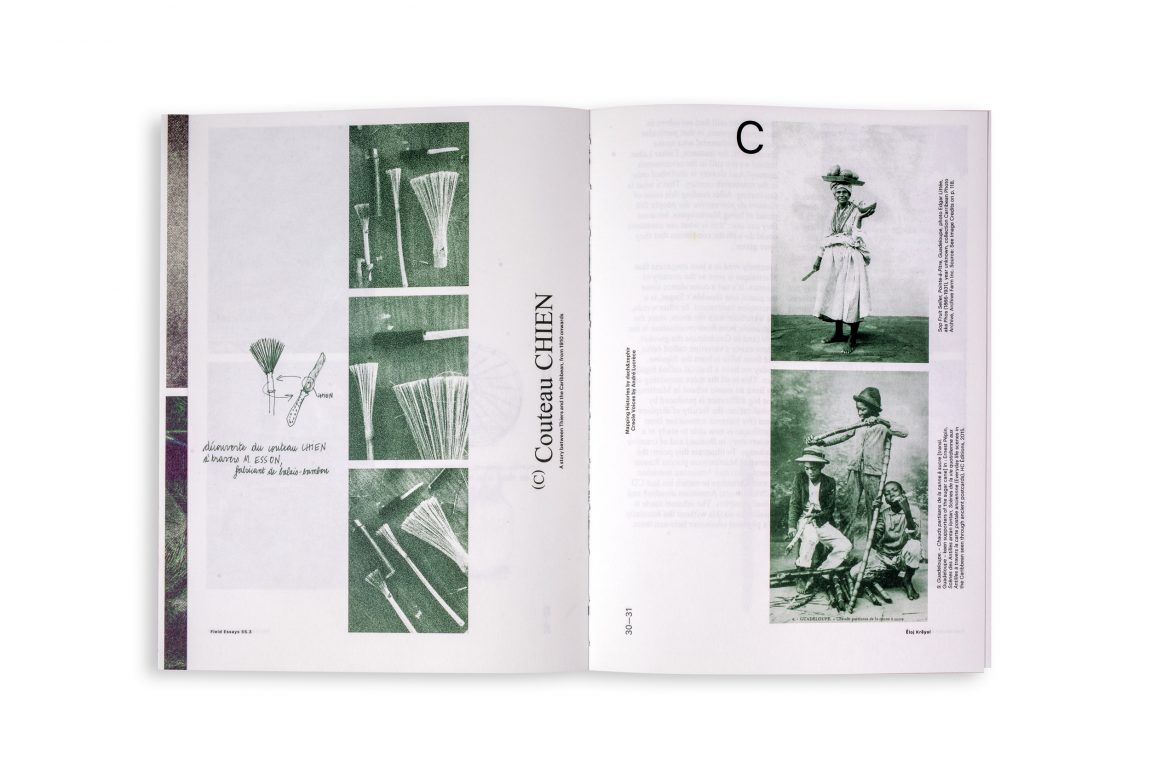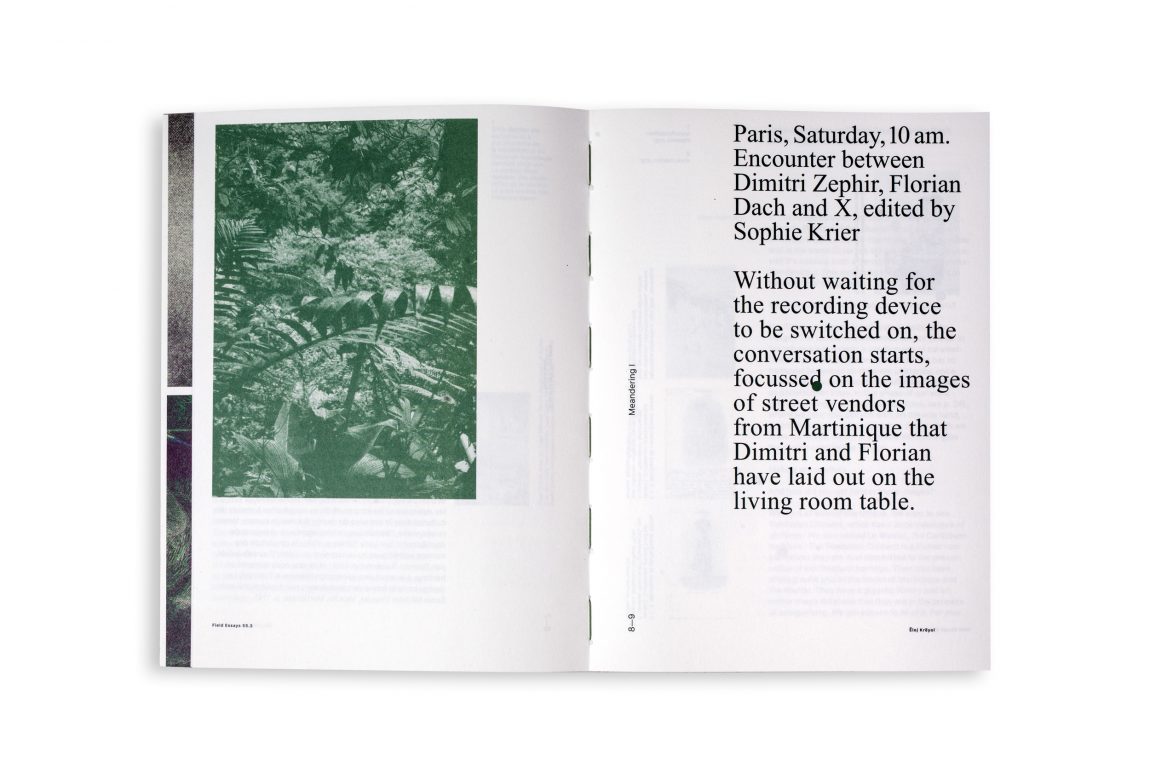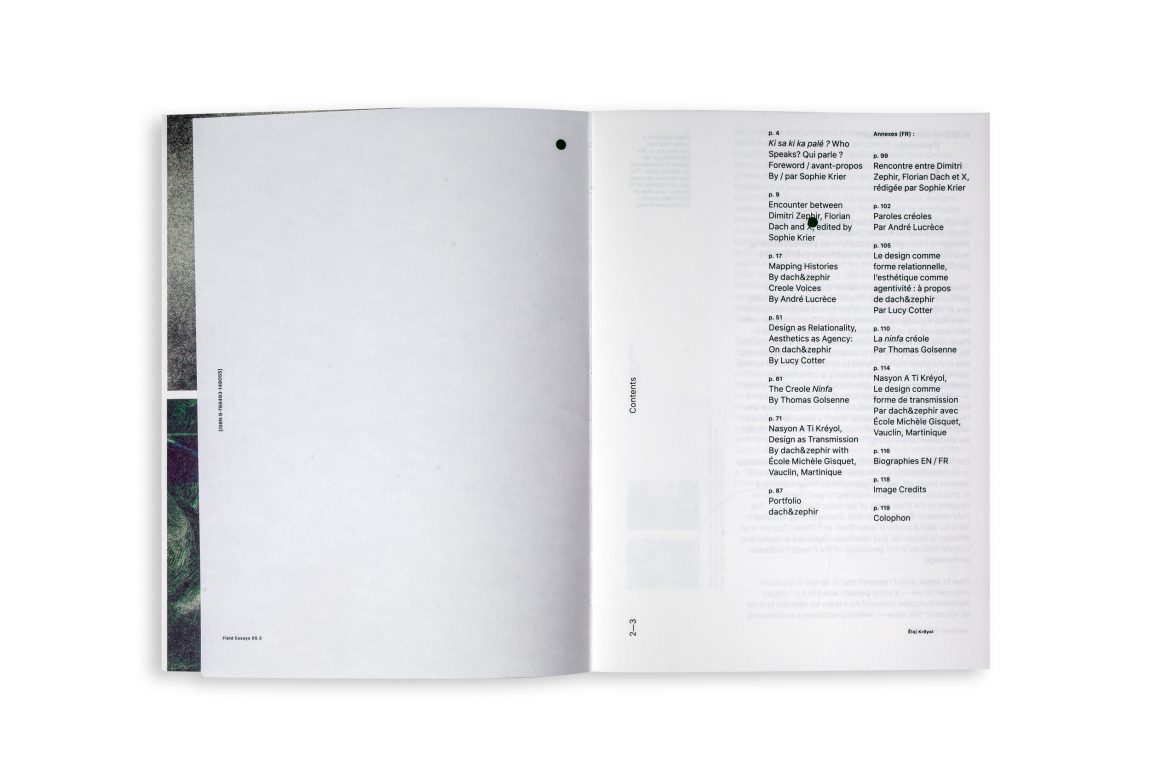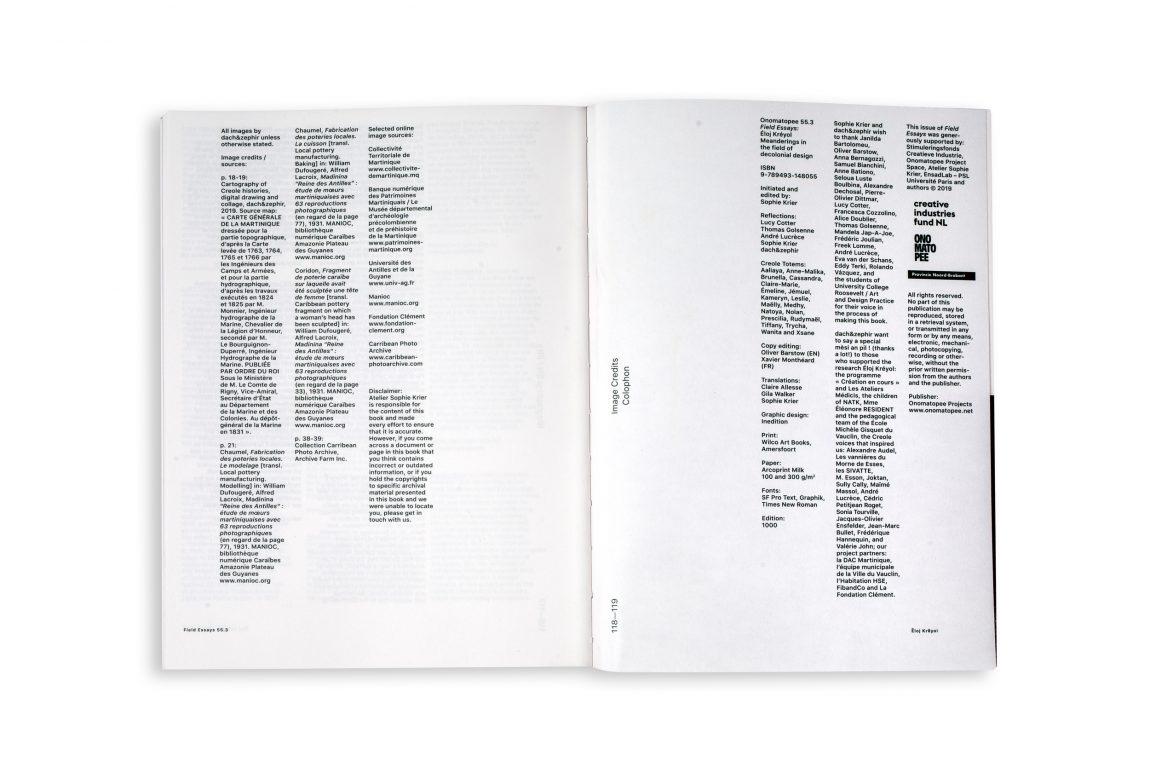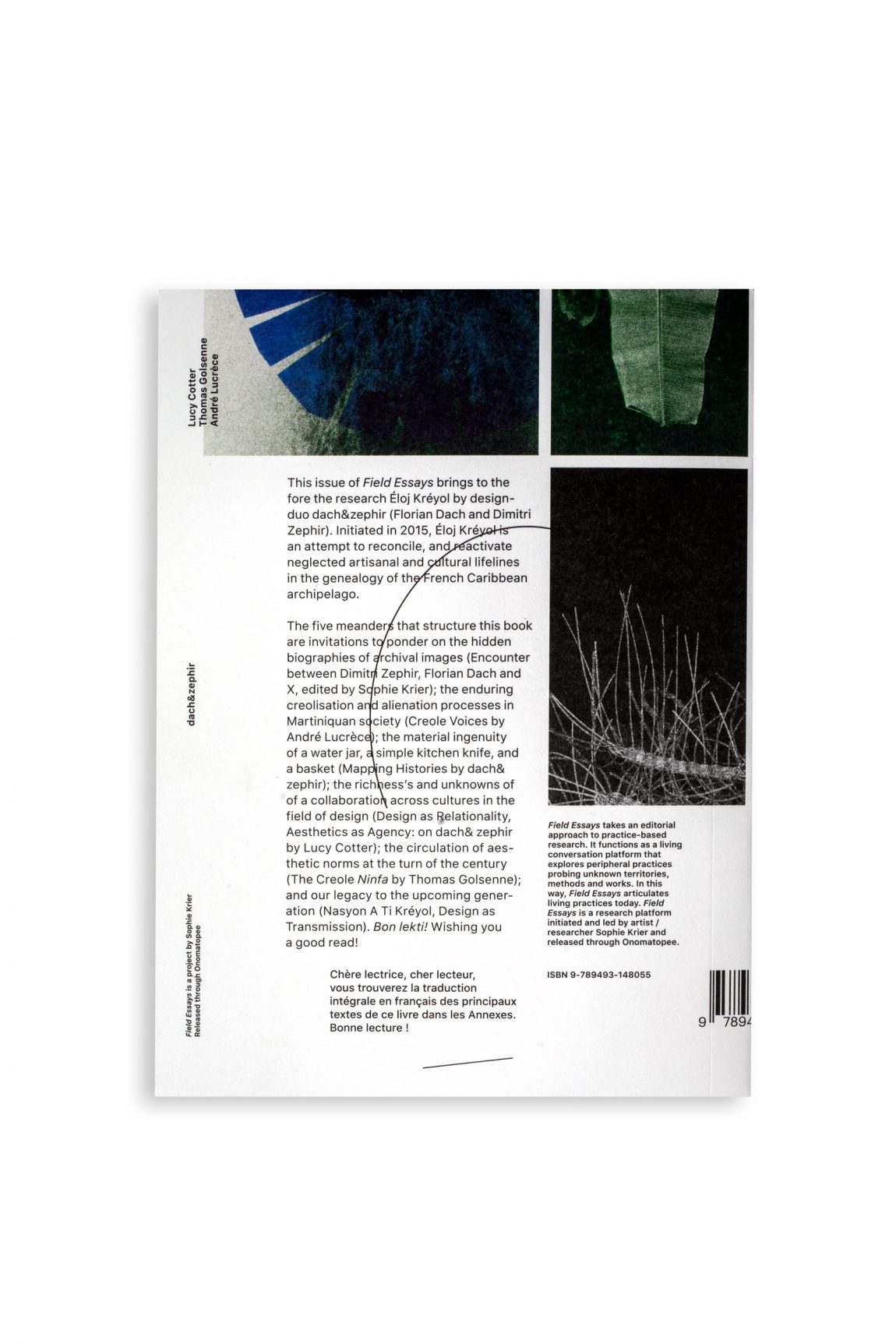Part of Onomatopee Design Week 20-28/10, 2018
Special opening hours:
Sat. 20 to Sun. 28, 13:00-19:00
Except for Friday 26 and Saturday 27 until 20:30
In Field Essays artistic production, design research, contextualisation and reflection as well as public release are conceived simultaneously. Field Essays is led by Atelier Sophie Krier and channelled through public gallery and publisher Onomatopee Projects.
Field Essays #3 is gaining shape througha residency by Paris based design duo dach&zephir developing their on-going research Éloge Créole, Chapitre 2, Escale 1 (Creole Praise, Chapter 2, Stopover 1) in which they interweave creole histories and archival footage from the island of Martinique. The residency, during which there will be conversations with invited experts, will lead up to an exhibition that will take on the form of an “expo-valise”, an exhibition in a suitcase. We expect matters of caring concerns and objects rich in both meaningful as joyful stories.
Since 2016, Florian Dach and Dimitri Zéphir form a duo, dach&zephir, in which they combine their respective approaches: speculative fiction, scenario driven (Dach) versus craft-based, relational and poetic (Zephir). Building on Dimitri’s thesis “Les mailles fertiles d’un créole”* (The fertile mesh of a Creole), they initiated the field research Creole Praise in 2017 in an effort to unveil and activate the mechanisms that have nourished and continue to nourish creolisation processes in the French Antilles. One of the interlocutors of the project Creole Praise, poet and writer Ernest Pépin, understands Creole culture as built “à partir de restes”, from leftovers.
‘While trained in industrial product design, we position ourselves as researcher-authors in the vast design field. To us an object is a medium, a thing, independent of its dissemination scope or of its function. We are convinced of the symbolic dimension of transmission and appreciation that objects carry. In essence our intention is to question “what makes history and identity”. We approach history and cultural heritage as a rich raw material, a form of storytelling capable of producing a language of matter, forms, and uses unique to each artefact. By making objects we propose to reveal and transmit, the historical and cultural specificities of the territories, which we explore. The objects we wish to design should act as mediation and comprehension tools for the world, thus contributing to a plural world history, woven together from stories.’
- Florian Dach and Dimitri Zéphir
* ZEPHIR Dimitri, « Les mailles fertiles d’un créole », mémoire de fin d’études, École nationale supérieure des Arts Décoratifs, Paris, 2015.
///
Sophie Krier founded Field Essays (2008 – ongoing) in order to investigate which forms of knowing are embedded in artistic processes, and how can these be shared and published. Field Essays explores peripheral practices that probe unknown territories and methods and works from specificity, momentum and dialogue; the editorial research functions as a conversation platform that experiments with ways to articulate the motives and sources of invited practitioners. The ensuing conversation can take the form of books, debates, workshops, short residencies, interviews or exhibitions. In essence, Field Essays is both fieldwork and reflection: for each issue Krier orchestrates an encounter between a chosen practitioner and someone with another perspective in an effort to start a shared reflection on the alternative forms of knowledge that the artifacts and gestures in the work at hand engender.

